Art History - Exam 2 - Aegean, Greek, and Etruscan
1/65
There's no tags or description
Looks like no tags are added yet.
Name | Mastery | Learn | Test | Matching | Spaced | Call with Kai |
|---|
No analytics yet
Send a link to your students to track their progress
66 Terms
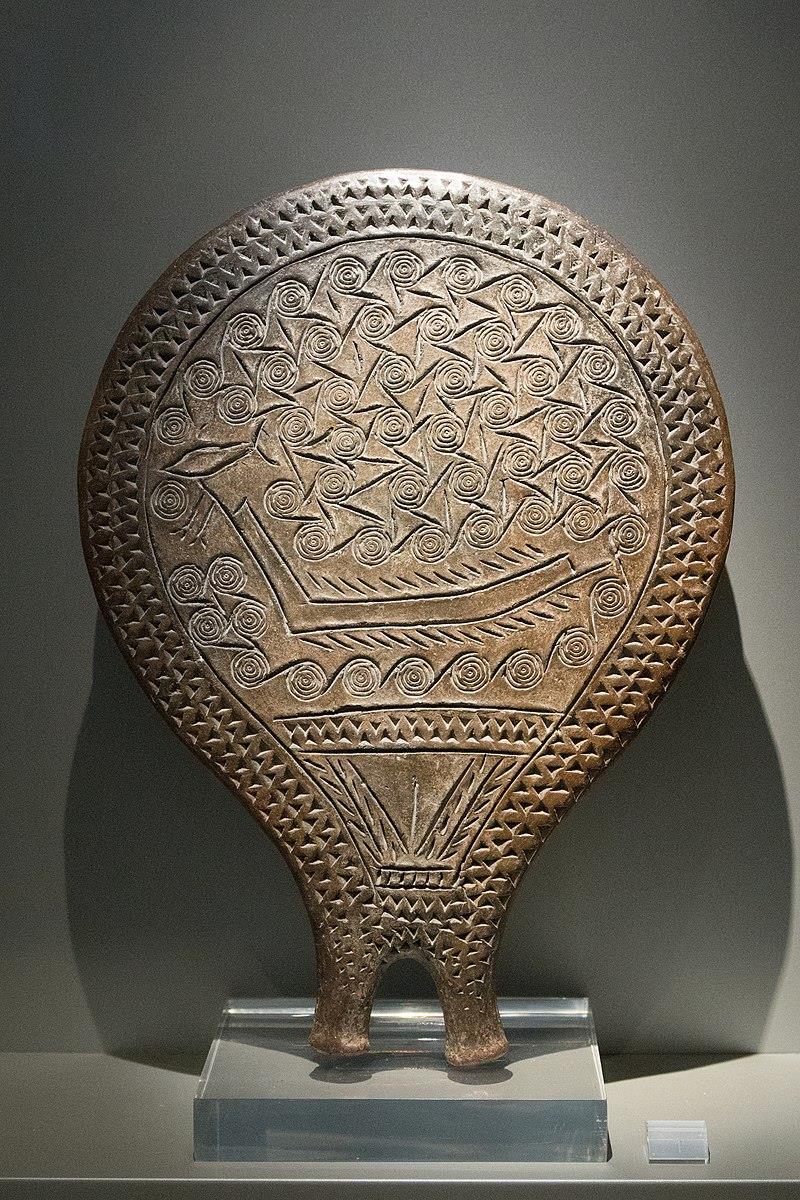
“Frying pan” from Chalandriani, Syros. Early
Cycladic II, c. 2500-2200 BCE, terra cotta,
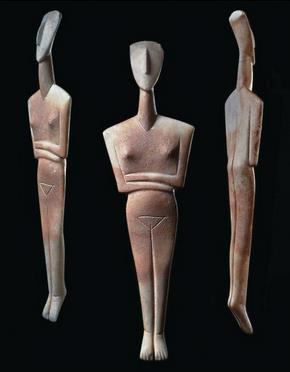
Female figure, from the Cyclades, c. 2500
BCE, marble
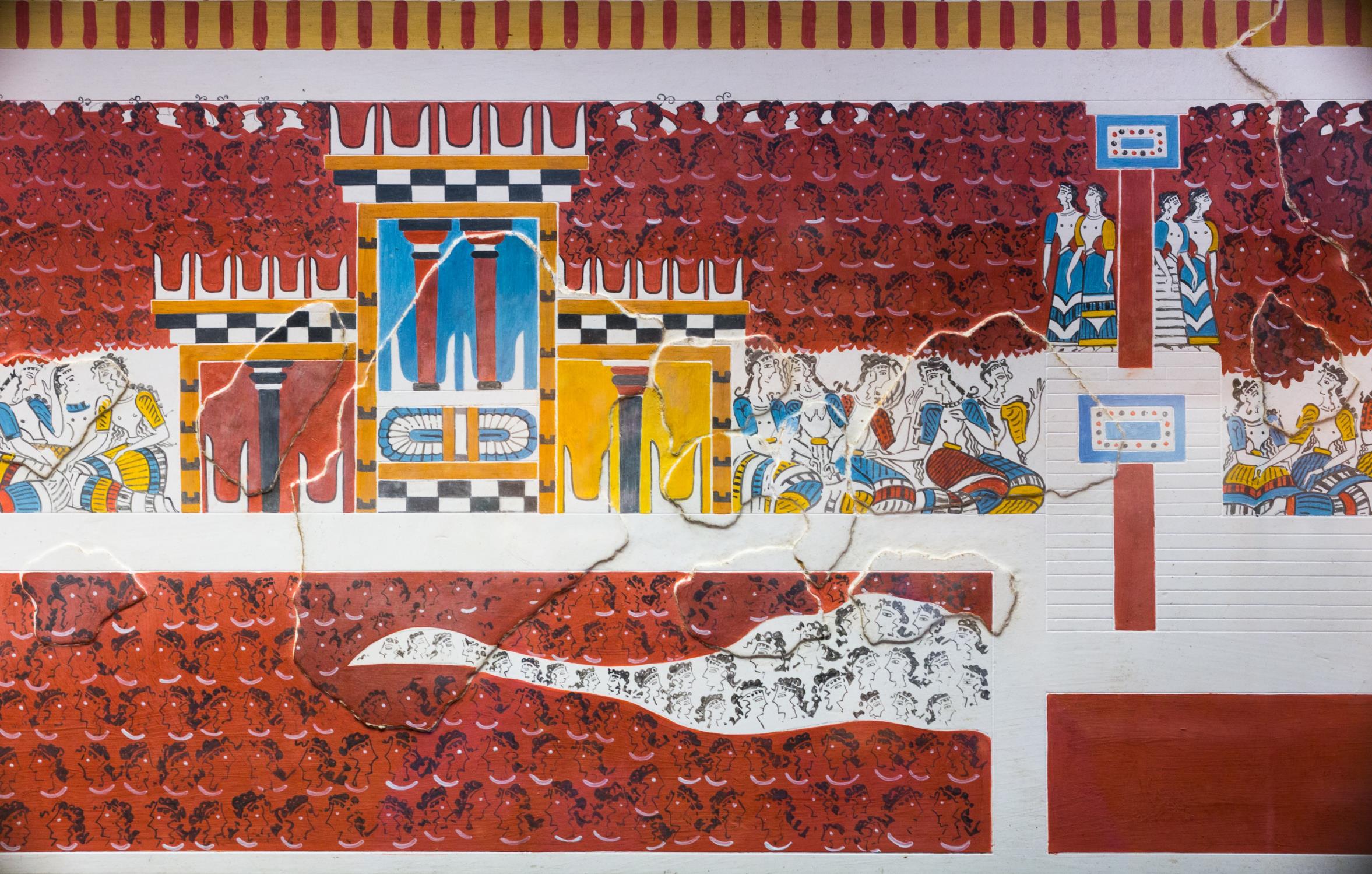
Grandstand Fresco, from
Knossos, Crete, c. 1500 BCE.
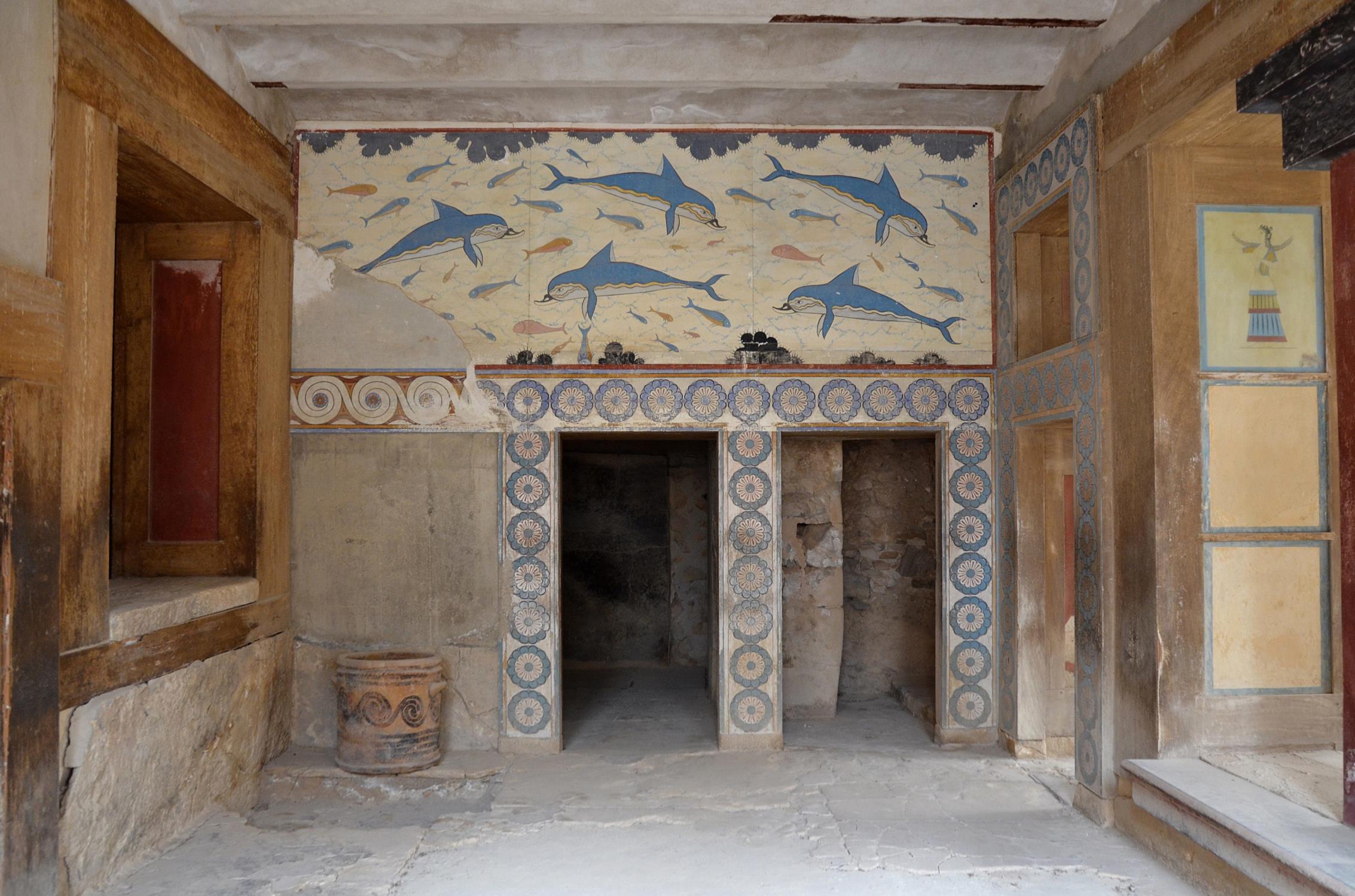
“The Queen’s Megaron,” from Knossos, Crete, c. 1700-1300 BCE.
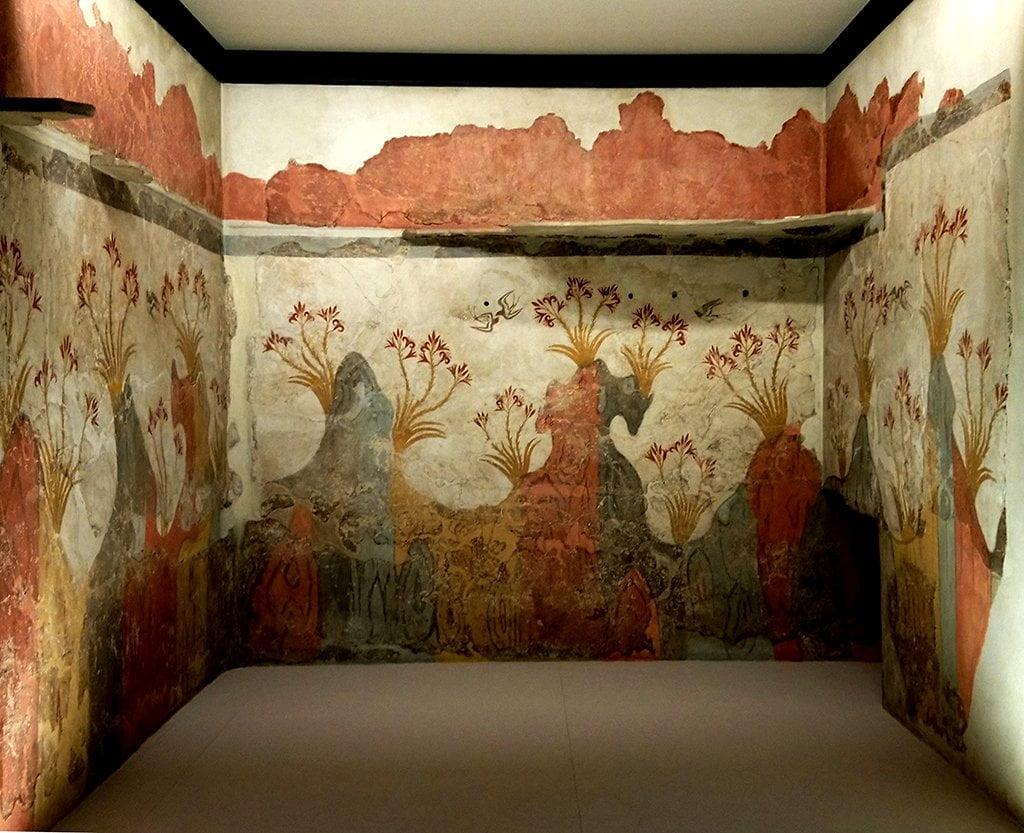
Spring Fresco, from Akrotiri, Thera, c. 1600-1500 BCE
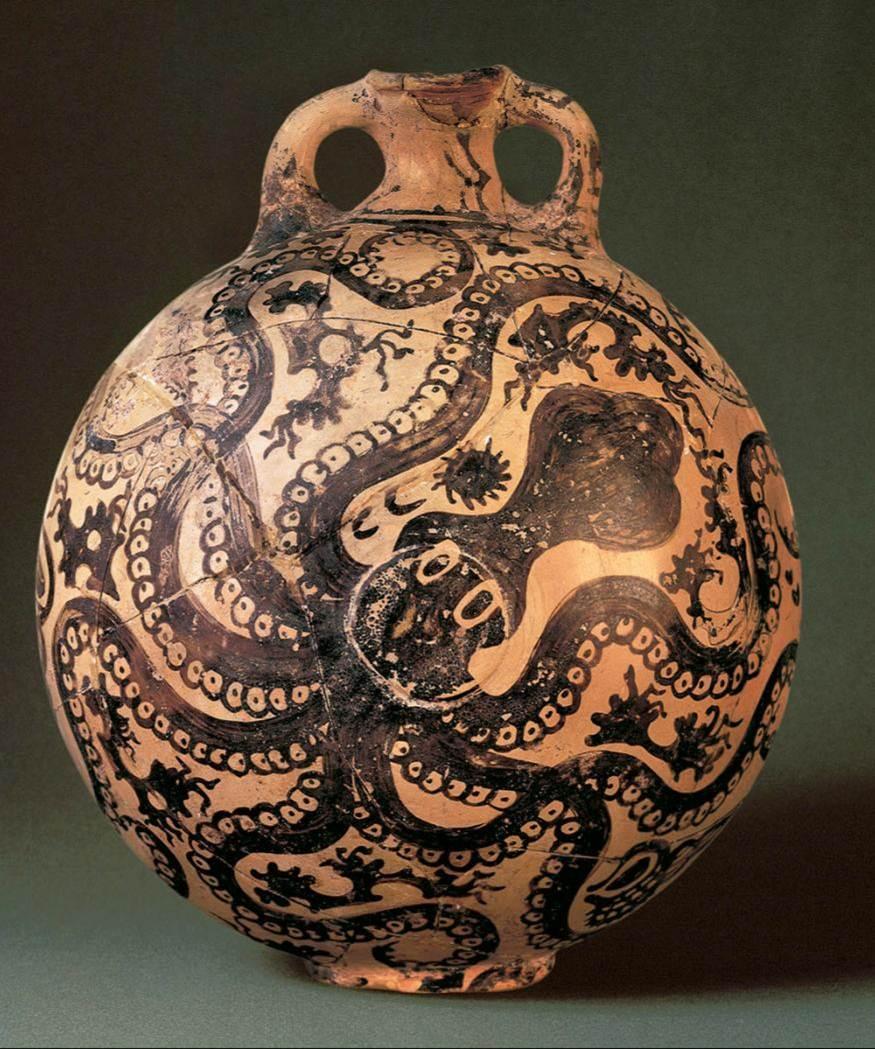
Octopus Vase, from Palaikastro,
Crete, c. 1500 BCE,
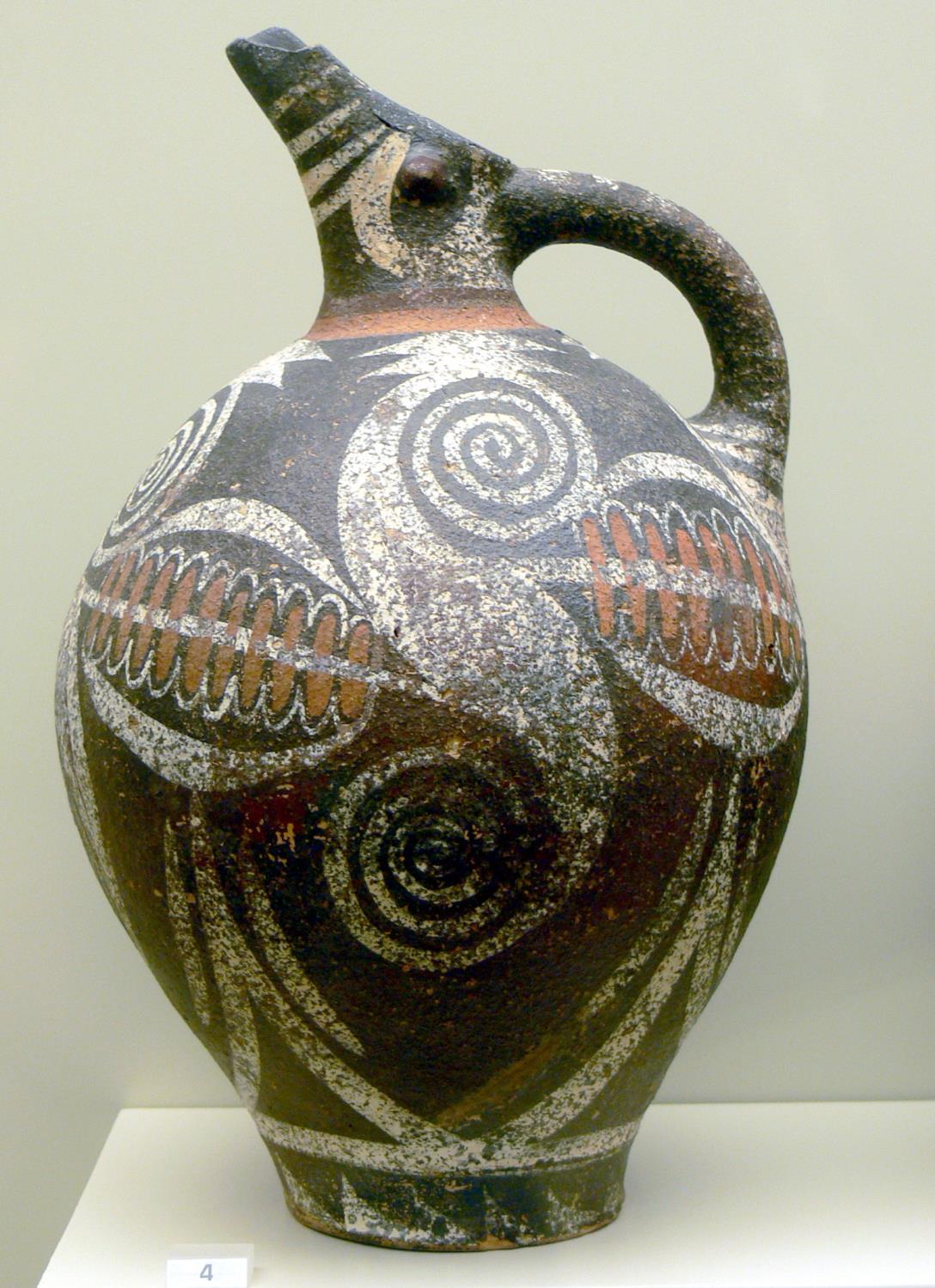
Beaked jug (Kamares ware), from
Phaistos, c. 1800 BCE,
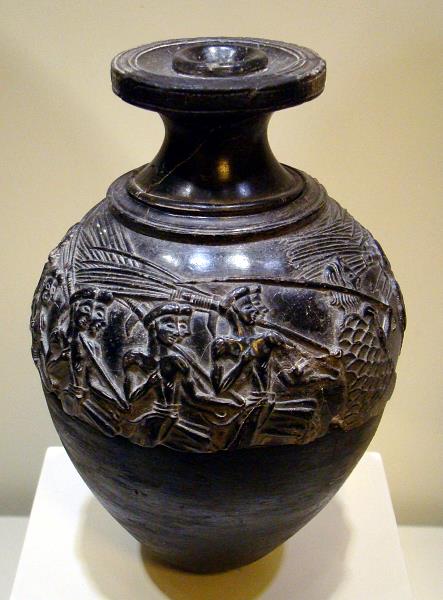
Harvester Vase, from Hagia Tiada,
c. 1500-1450 BCE, steatite
(soapstone
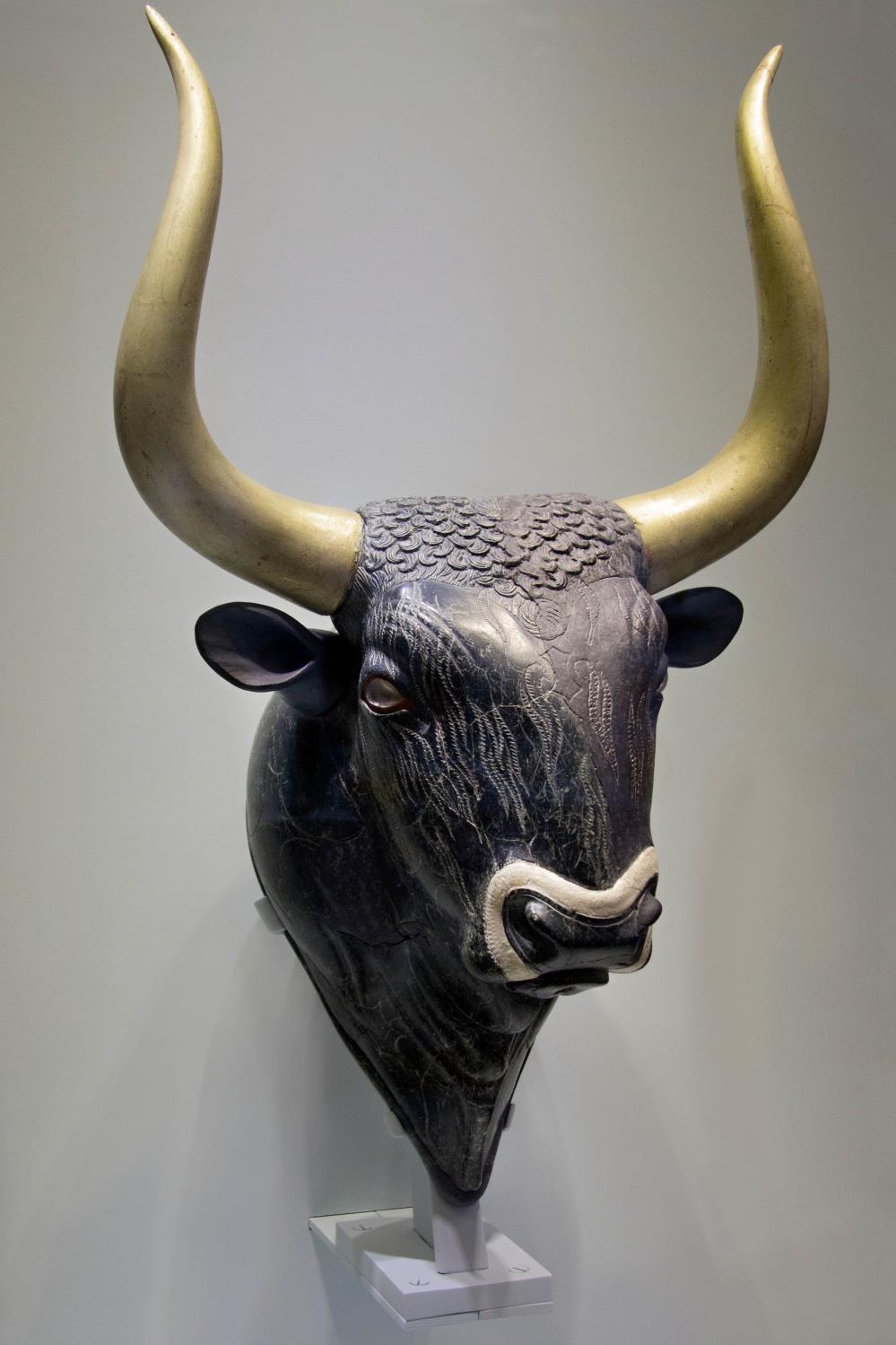
Bull rhyton, from Knossos, Crete, c. 1500-1450
BCE, serpentine, steatite, crystal, shell inlay
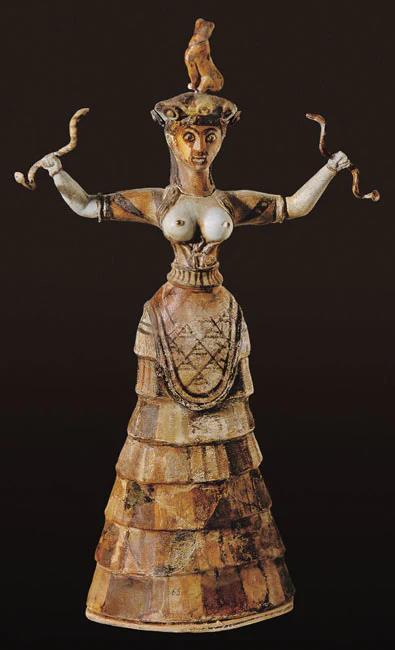
Snake Goddess, from Knossos, Crete, c. 1650
BCE, faience
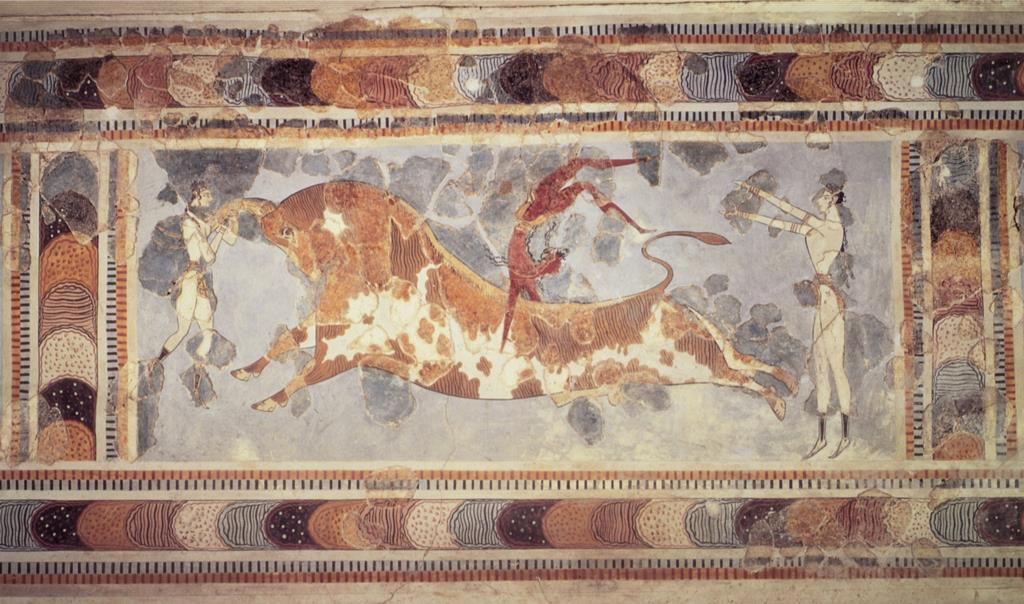
Toreador Fresco, from Knossos, Crete, c. 1550-1450 BCE, fresco
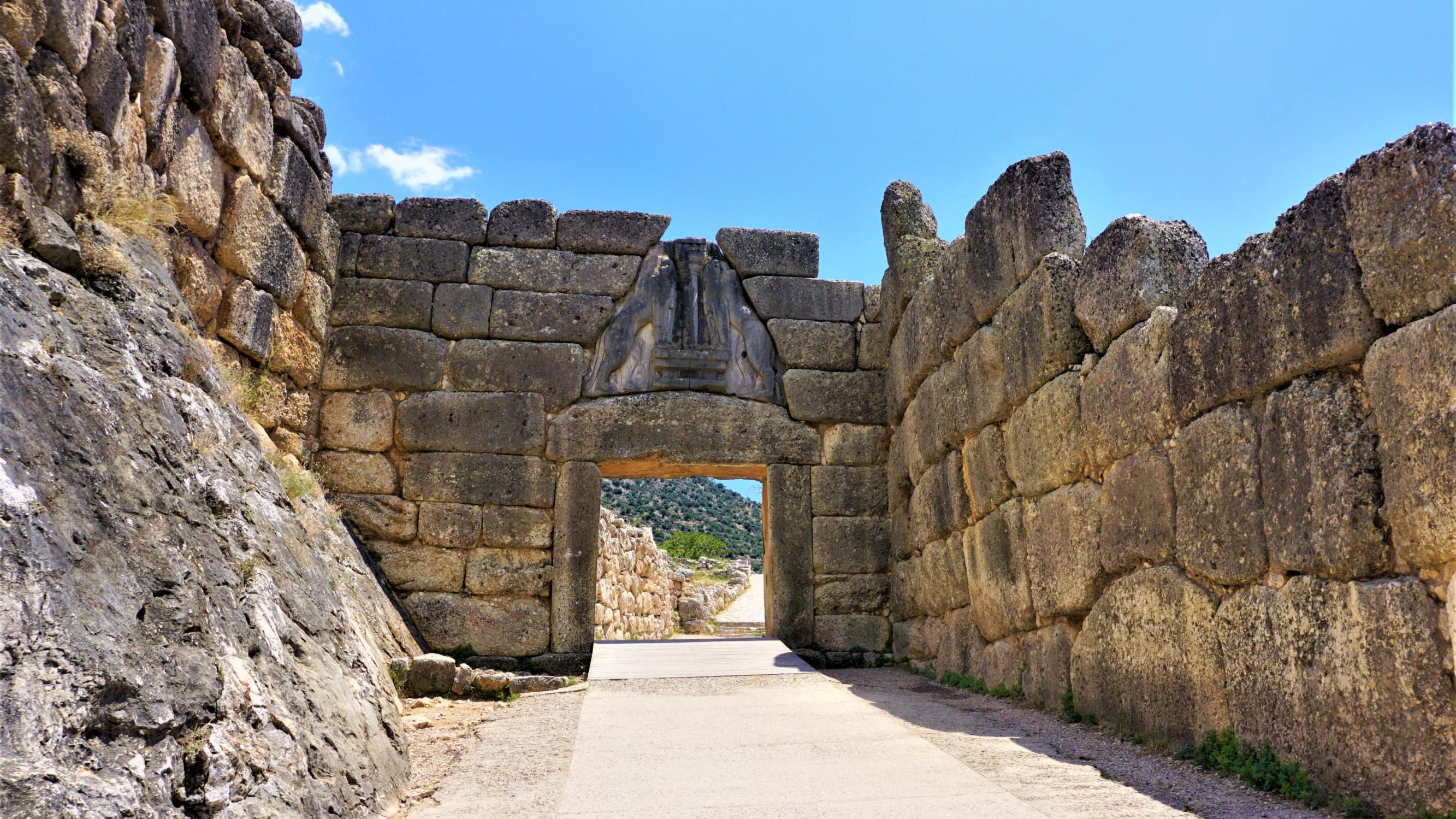
The Lioness Gate, Mycenae, Greece, c. 1250 BCE.
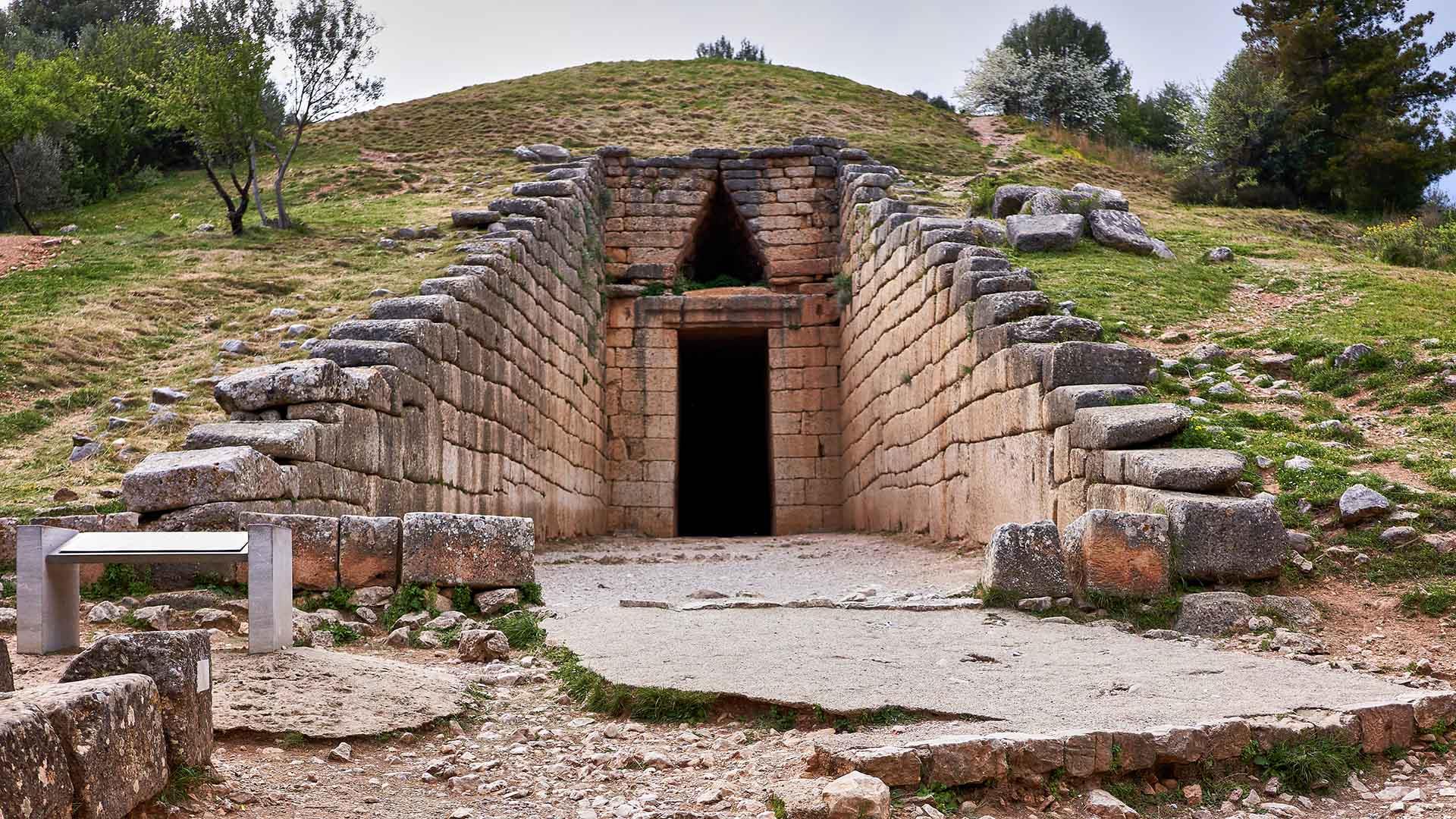
Tholos and Dromos
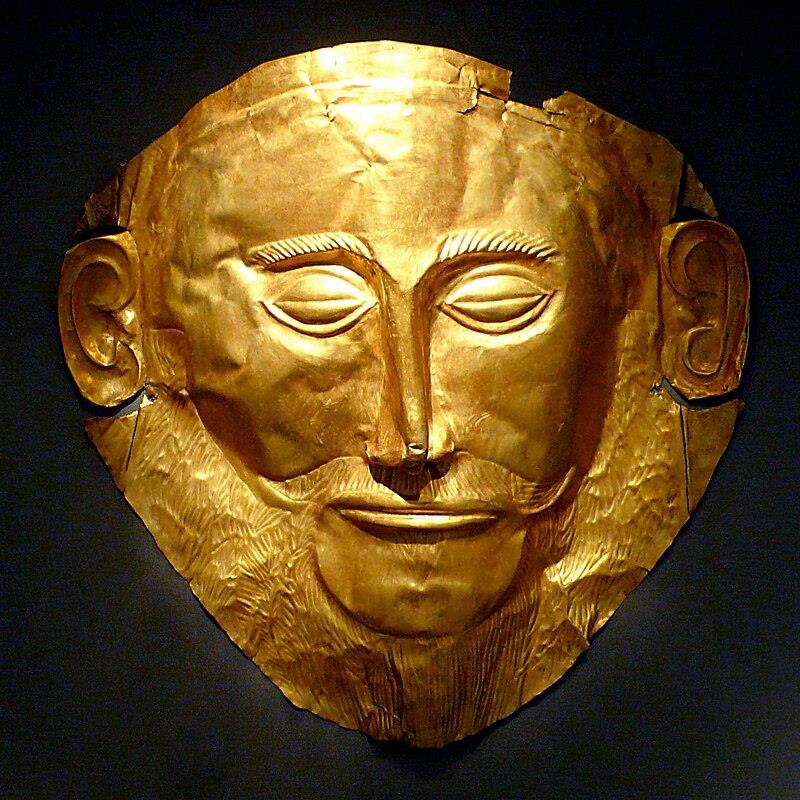
Mask of Agamemnon, from Grave Circle A, Mycenae, Greece, c. 1600-1500 BCE, gold
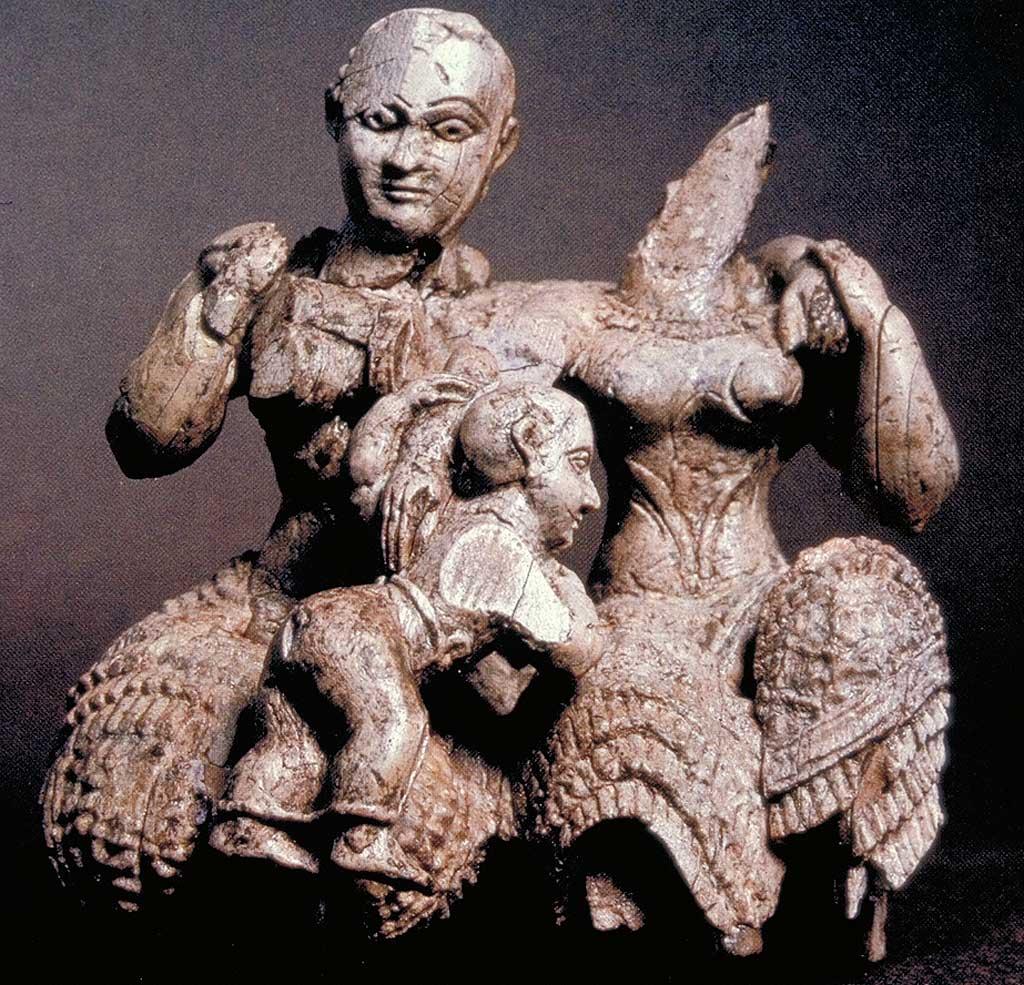
Three Deities, from Mycenae, Greece, 14
th
-13
th
century BCE, ivory
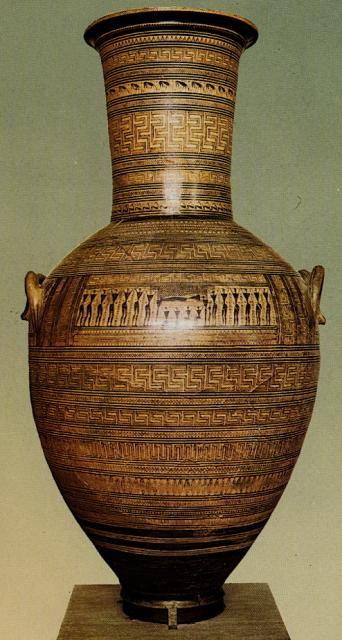
DipylonVase (belly-handled amphora),
from DipylonCemetery, Athens, c. 750
BCE
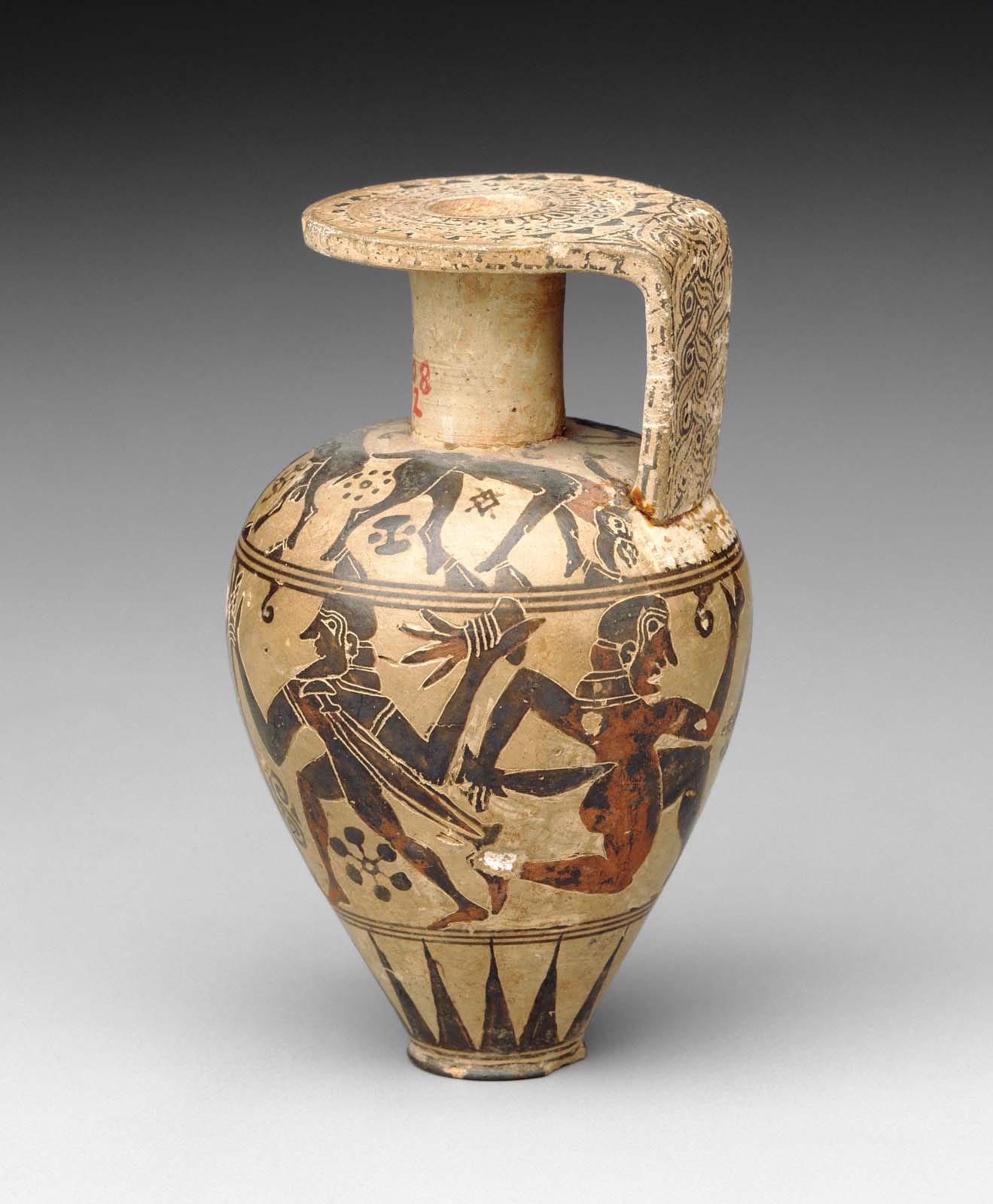
The Ajax Painter, Aryballos (perfume jar), 690-675 BCE
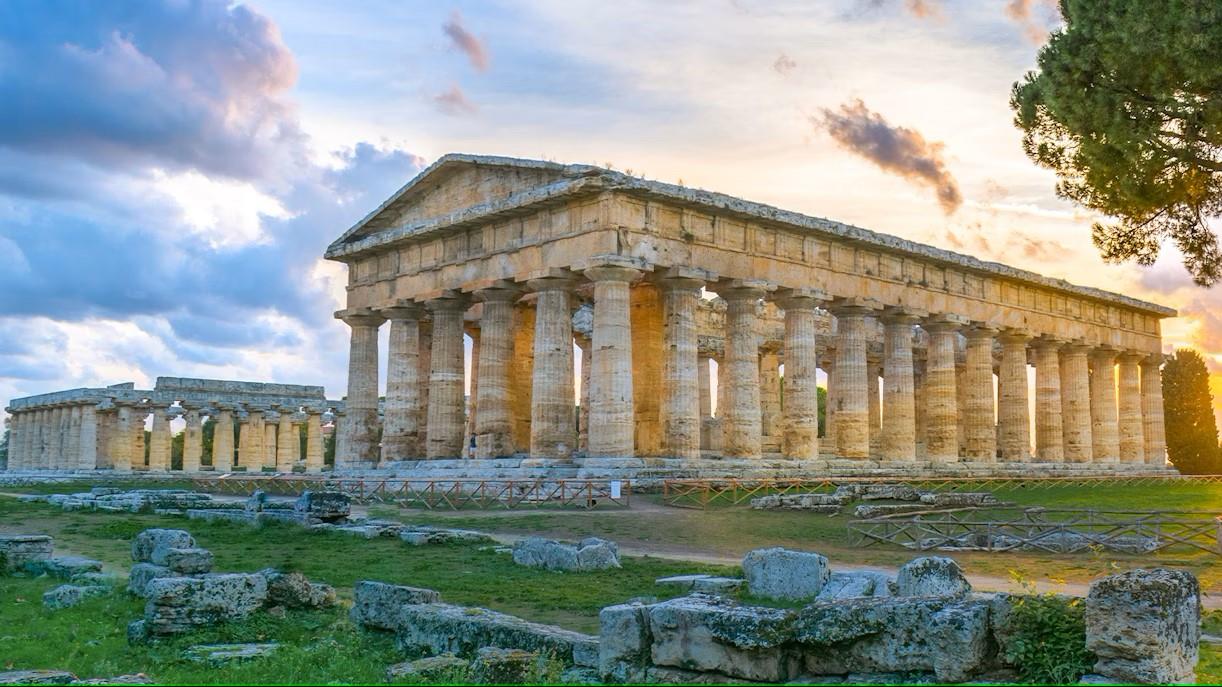
Temple of Hera I (“Basilica”), c. 550 BCE, and Temple of Hera II (“Temple of Poseidon
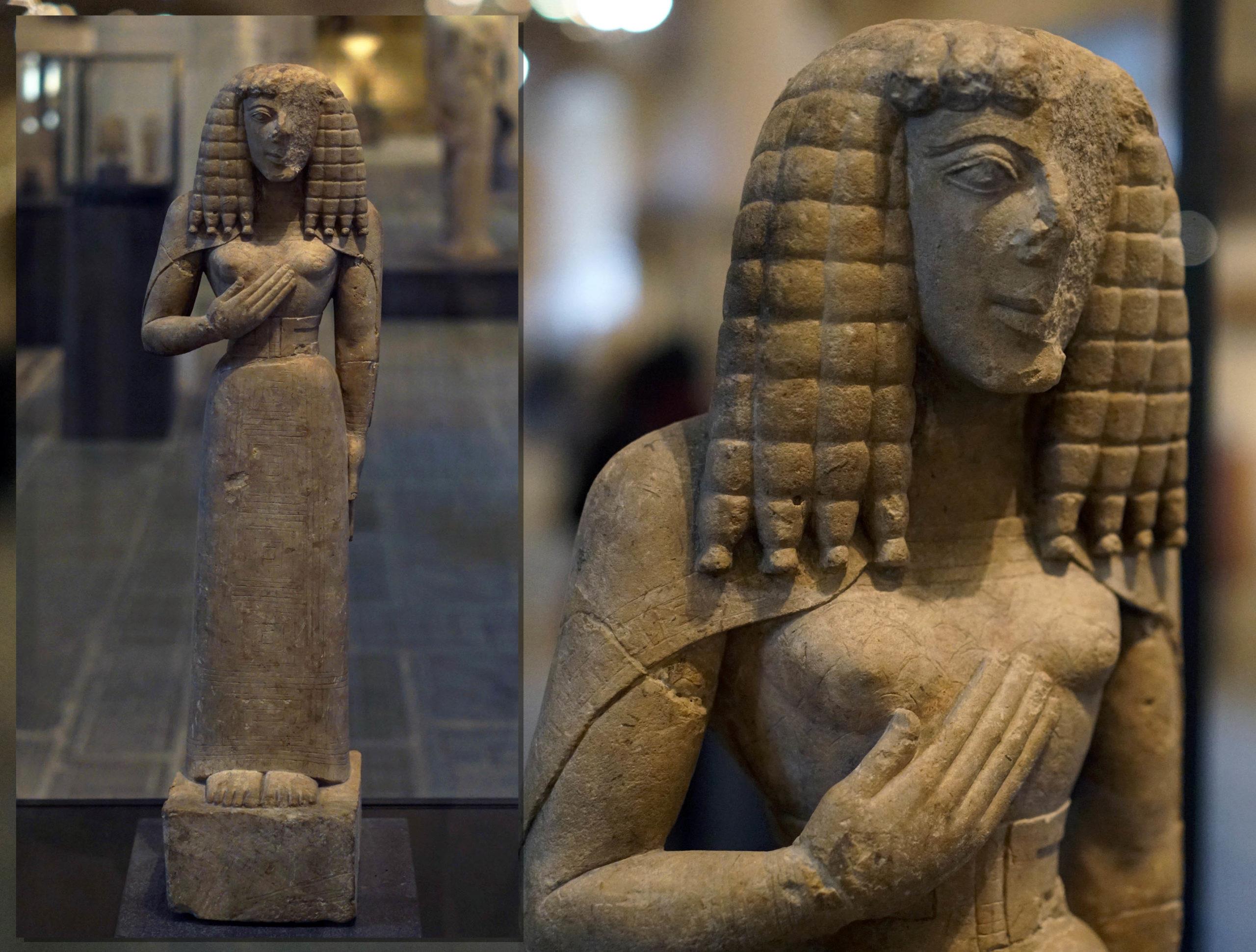
Kore (Maiden), c. 630 BCE, limestone,
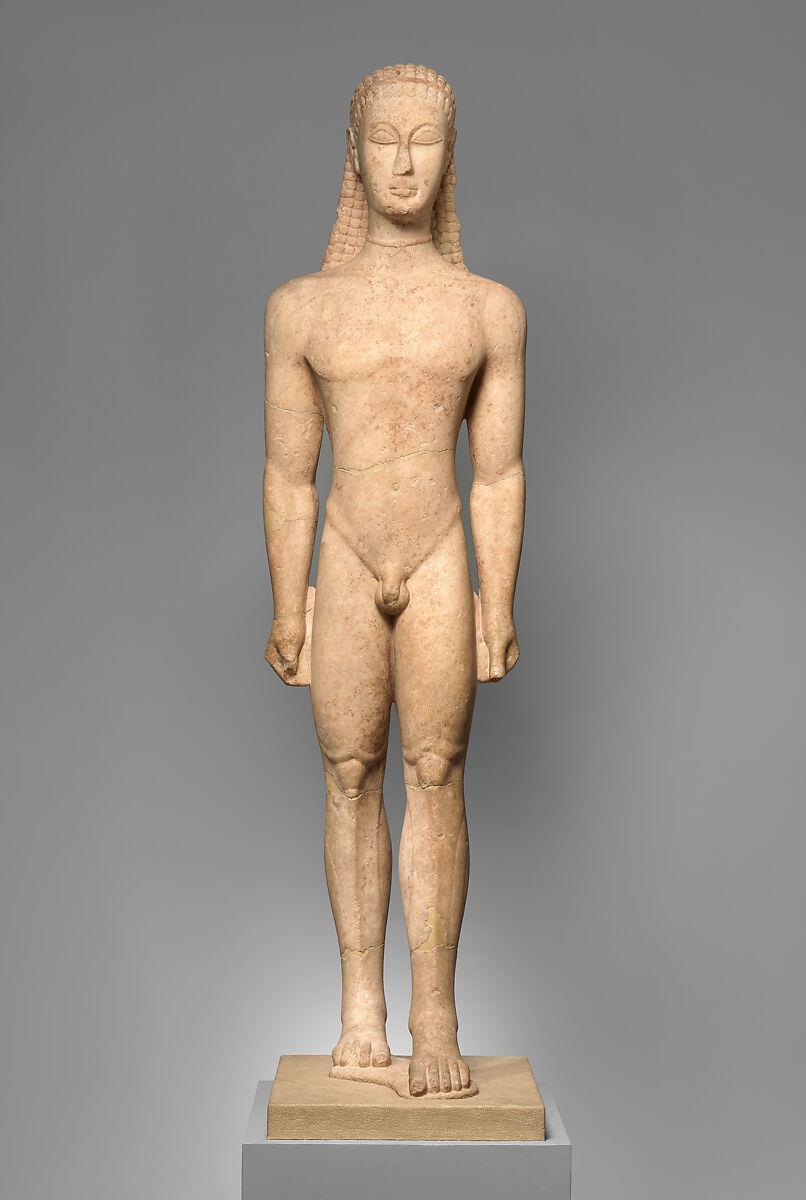
New York Kouros (Youth), c. 600-590 BCE, marble
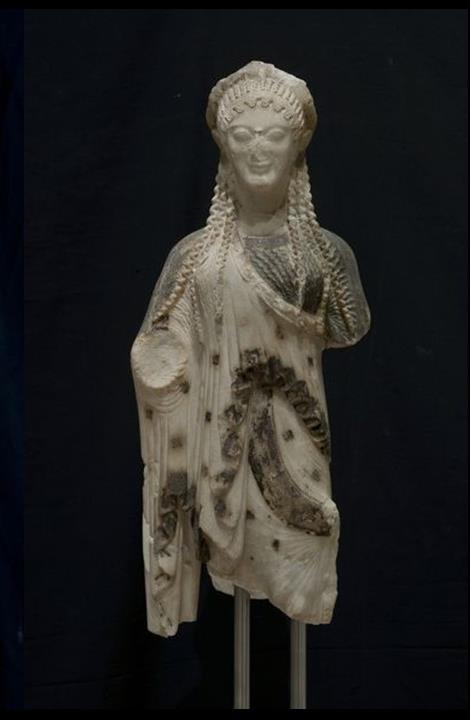
Kore, from Chios, c. 520 BCE, marble
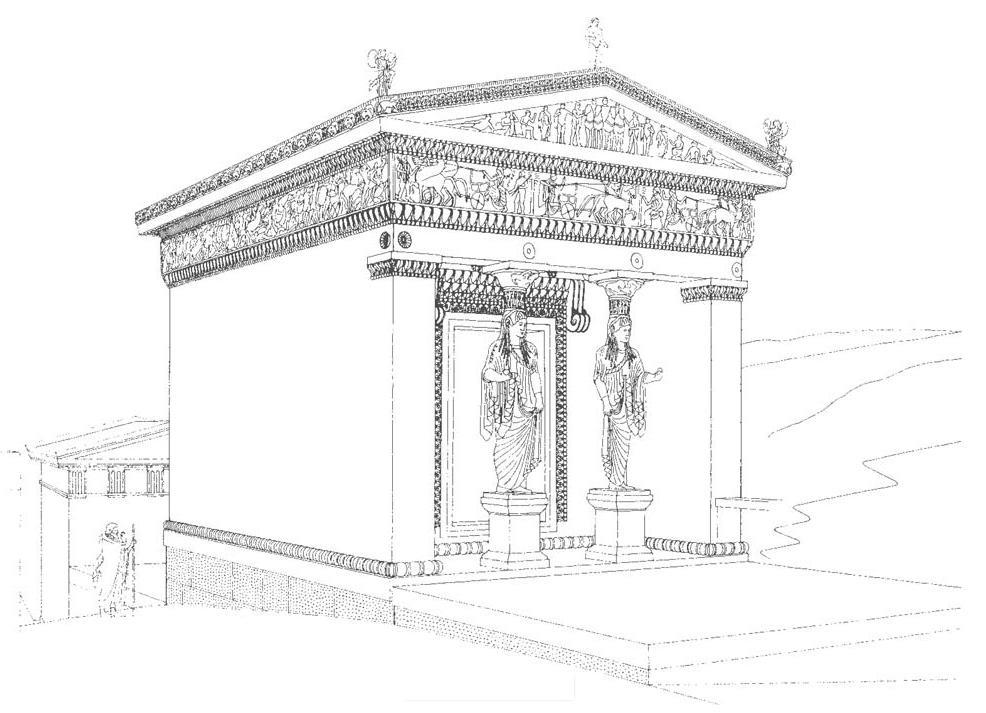
Reconstruction drawing of Treasury of the Siphnians, Sanctuary of Apollo, Delphi, c. 525 BCE.
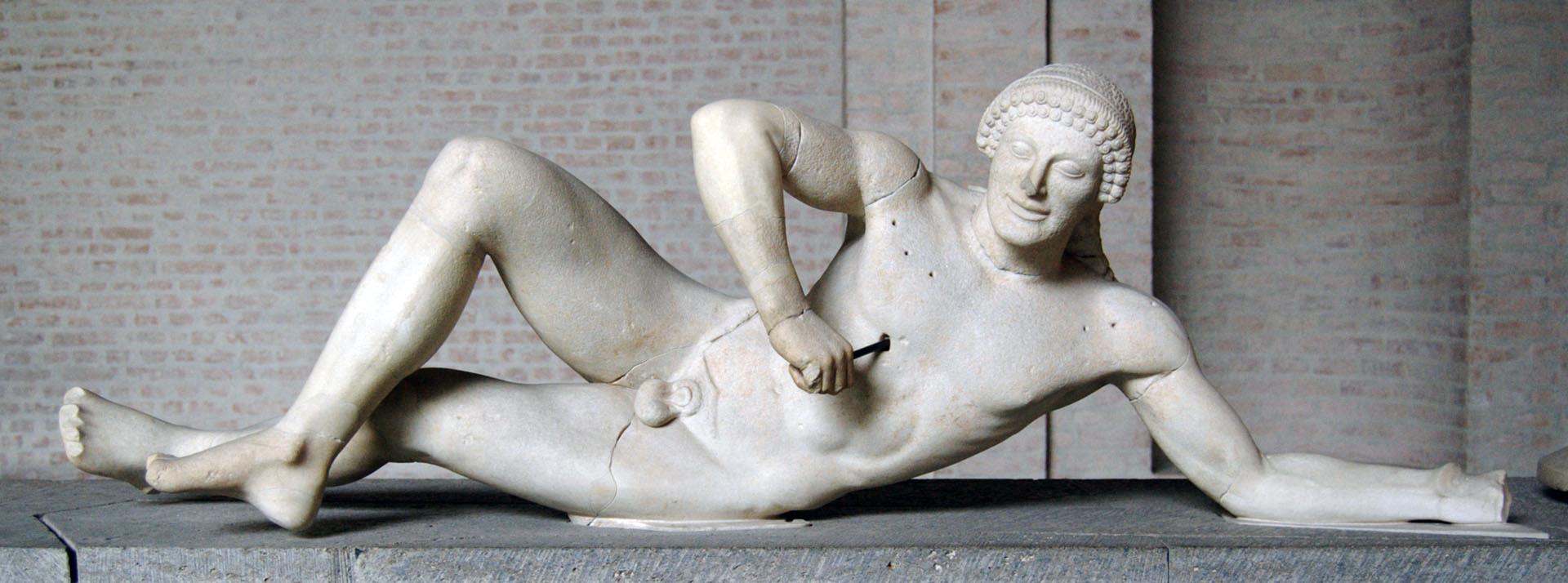
Dying Warrior from the west pediment of the Temple of Aphaia, Aegina, c. 500-490 BCE
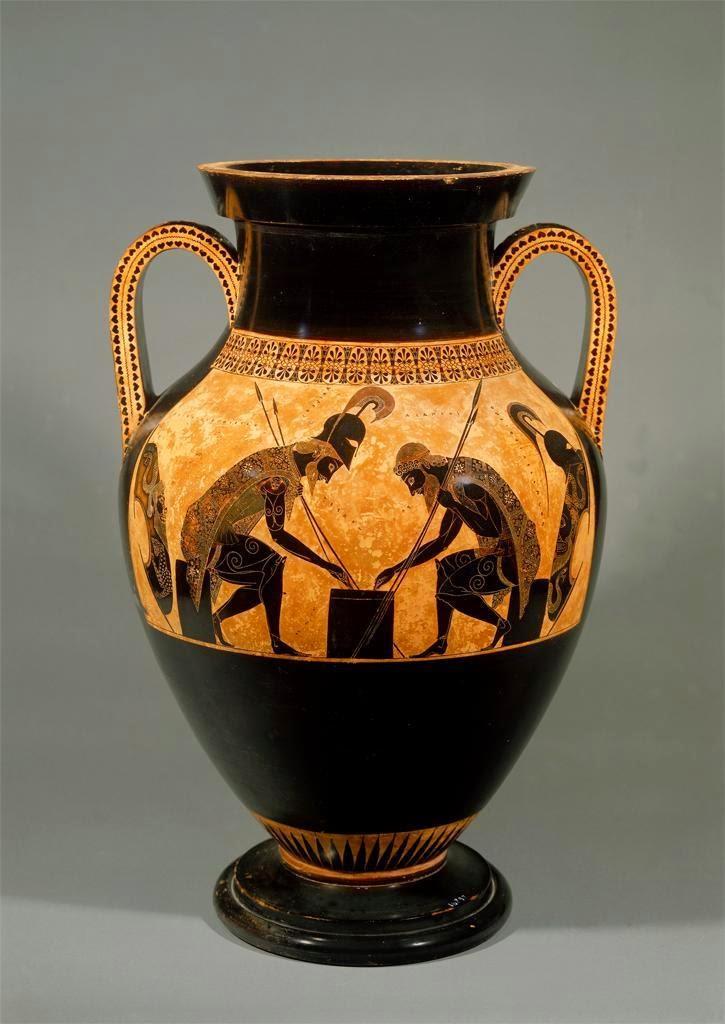
Exekias. Achilles and Ajax Playing Dice, black-figured amphora, c. 540-530 BCE
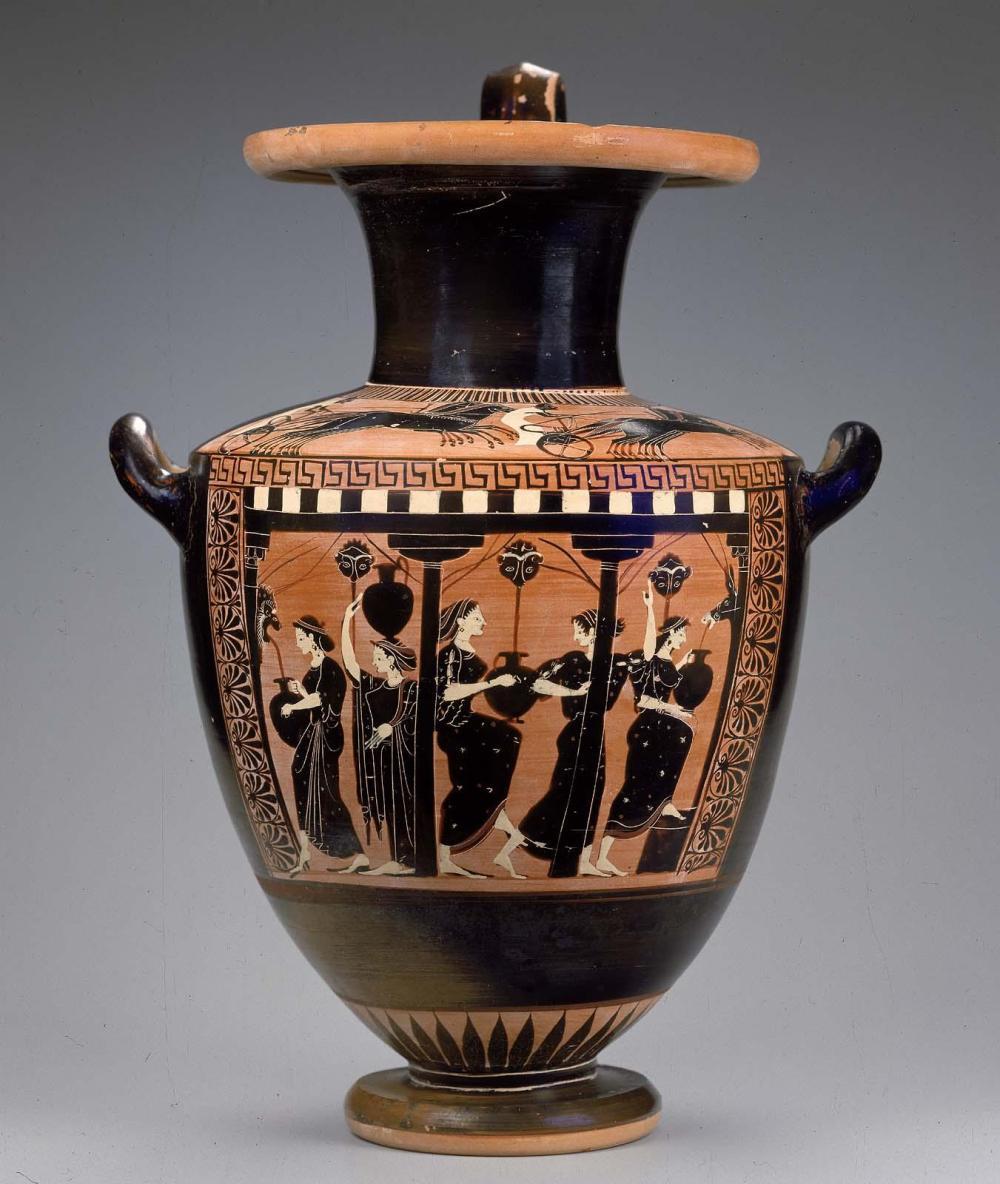
Priam Painter. Women at a fountain house, 520-510 BCE, black-figured hydria, ceramic
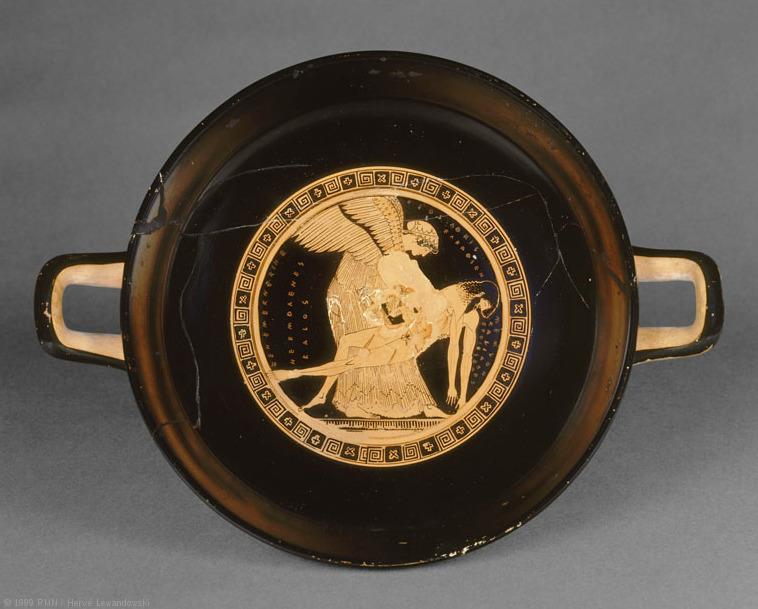
Douris, Eos and Memnon, Attic red-figured kylix, c. 490-480 BCE, ceramic
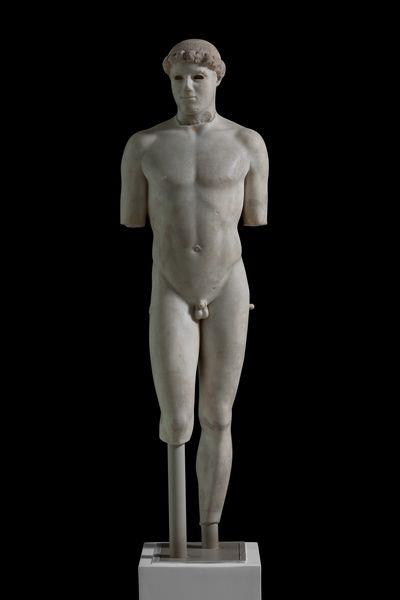
Kritios Boy, c. 480 BCE, marble
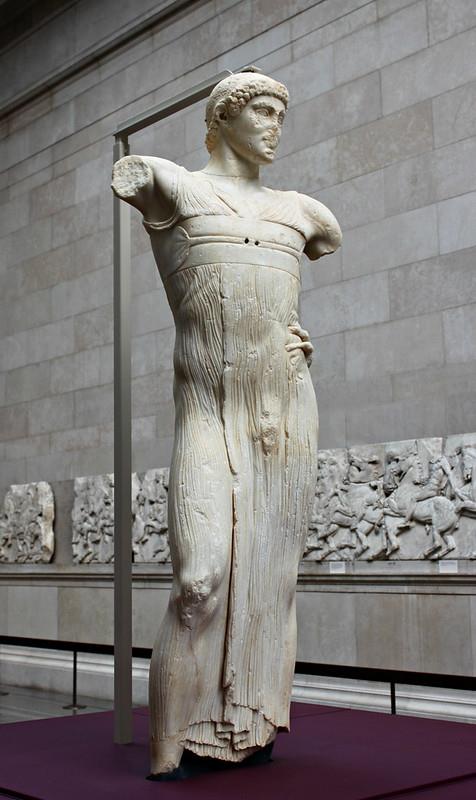
Charioteer from Motya, Sicily, c. 450-440
BCE, marble

Zeus, c. 460-450 BCE, bronze
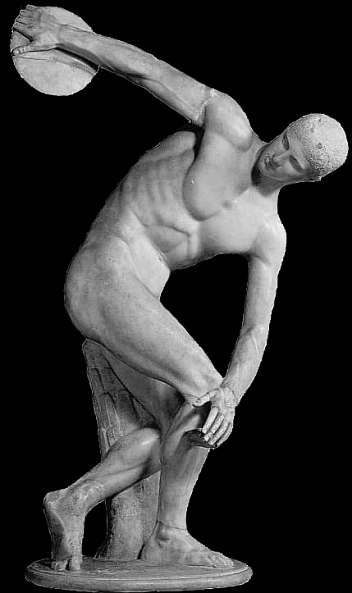
Diskobolos(Discus Thrower), Roman copy
after a bronze original c. 450 BCE, marble
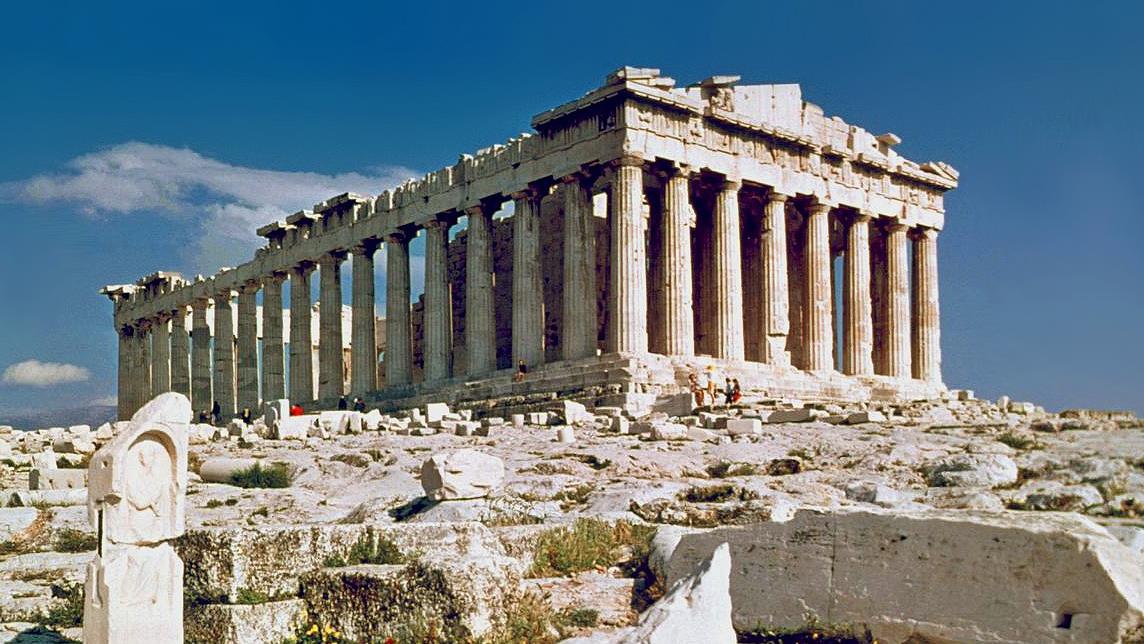
West view of the Parthenon, 447-432 BCE
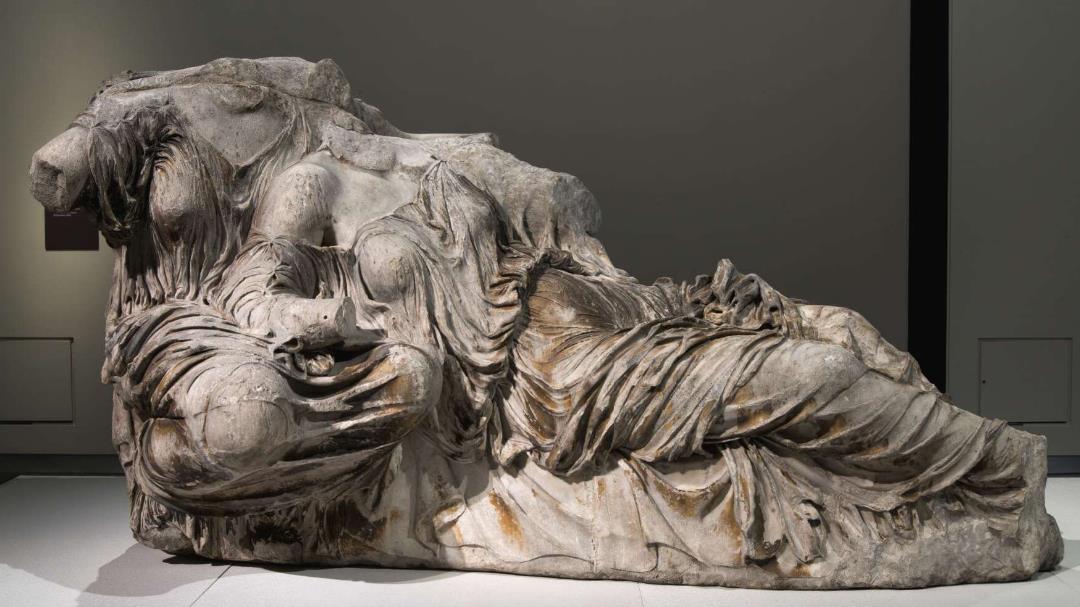
Three (two) goddesses from east pediment of the Parthenon, c. 438-432 BCE, marble
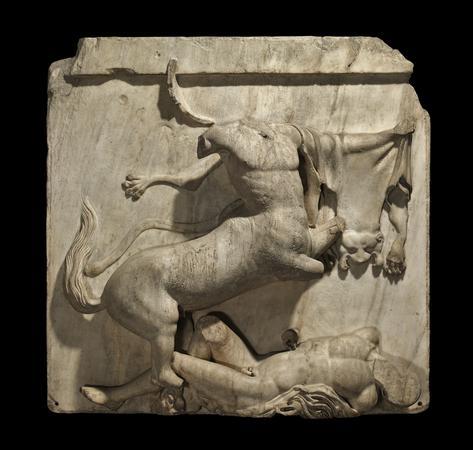
Lapithand Centaur, metope from south side of the Parthenon, c. 440 BCE
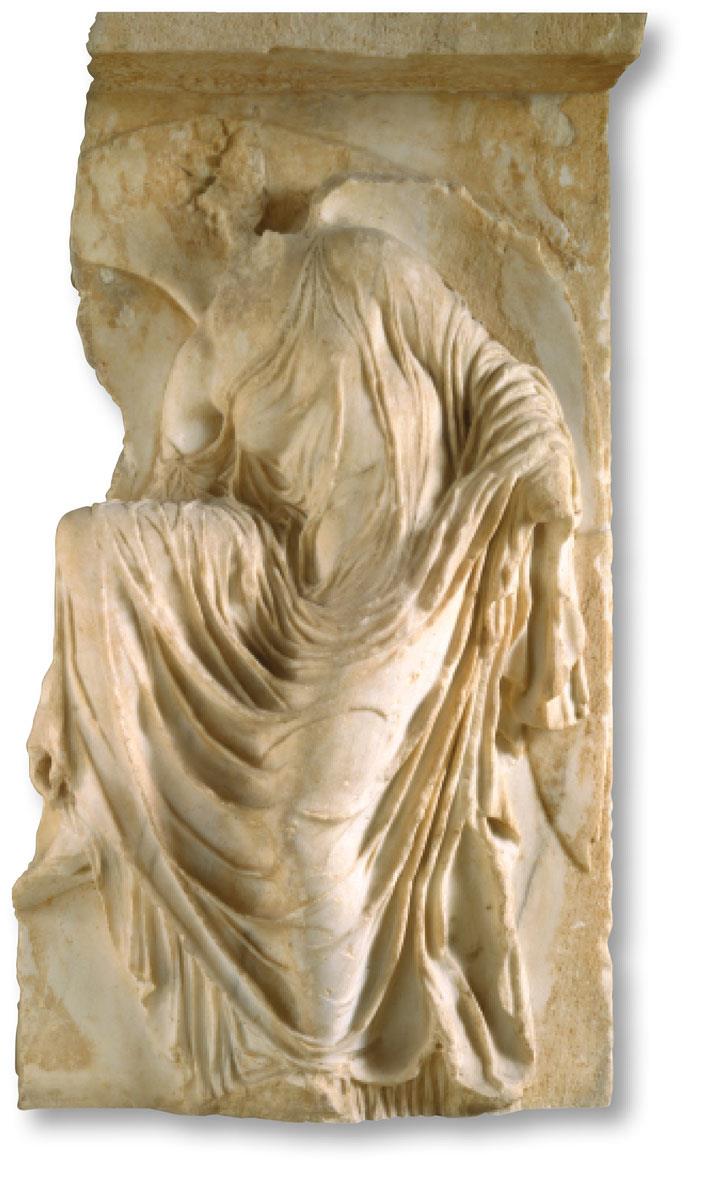
Nike, from balustrade of Temple of Athena Nike, c. 410-407 BCE, marble
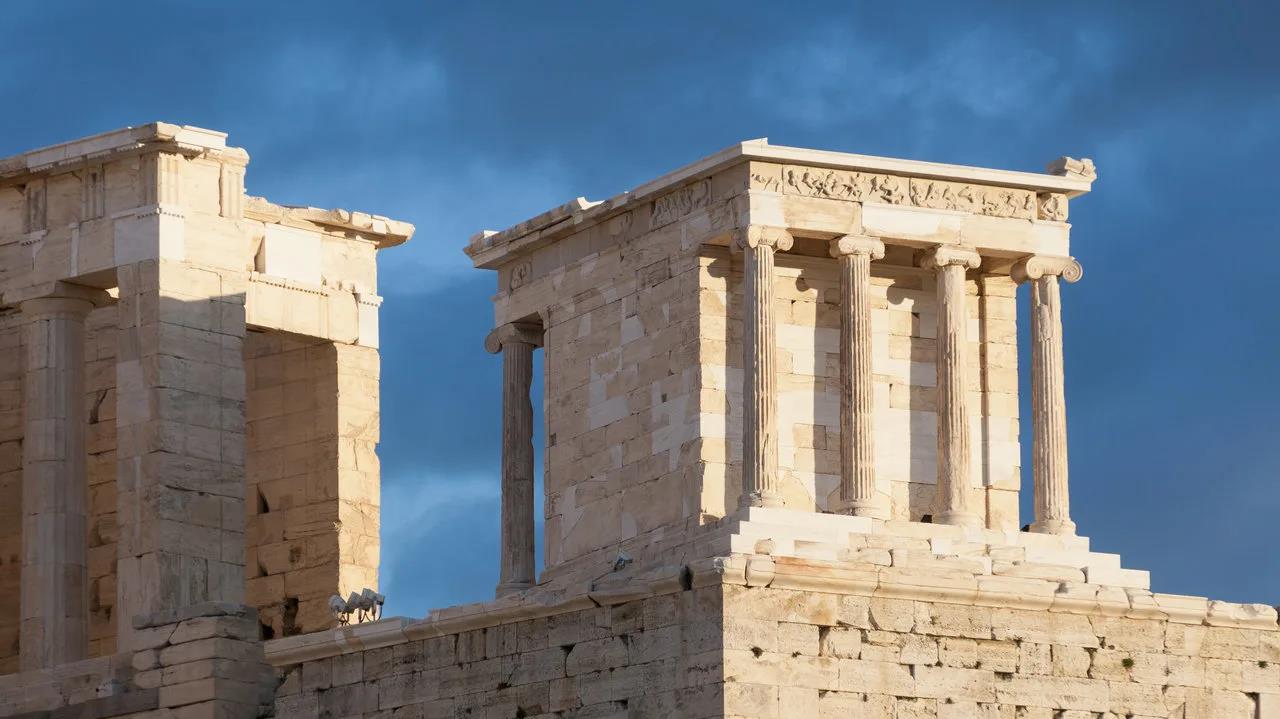
Temple of Athena Nike, 427-424 BCE. Akropolis, Athens.
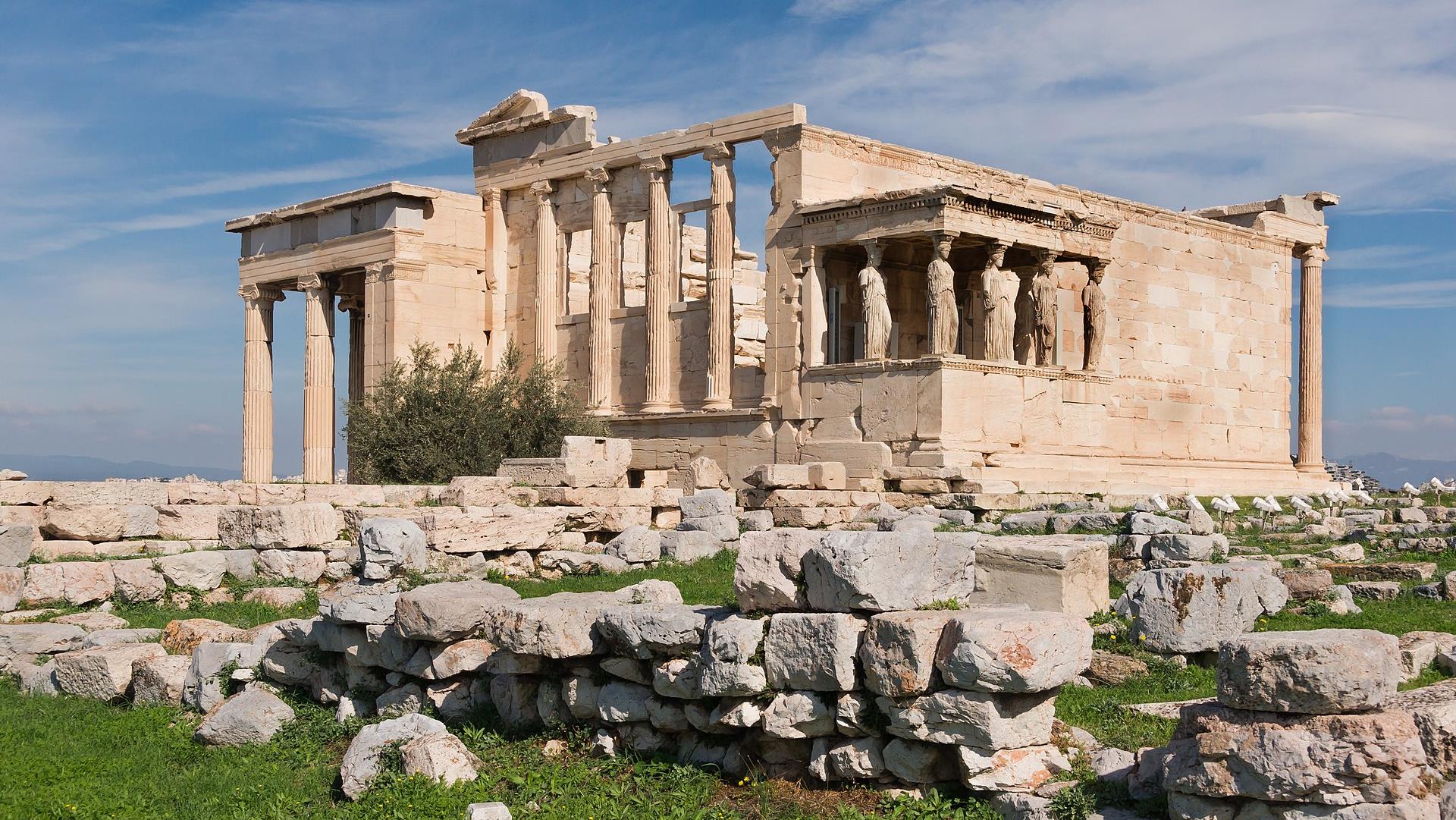
The Erectheion, 421-405 BCE, Akropolis, Athens.
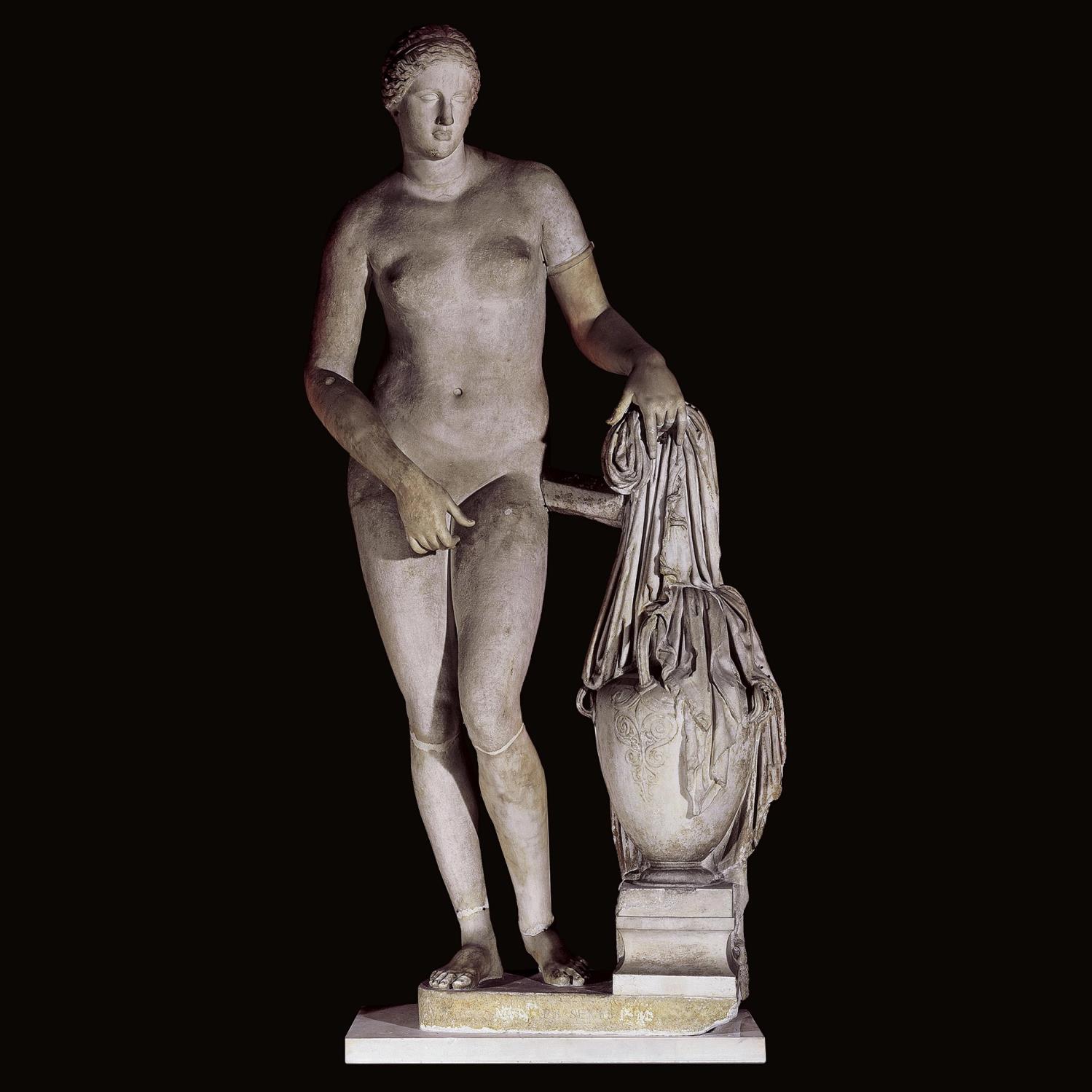
Aphrodite of Knidos, Roman copy after an original of
c. 340-330 BCE, marble,
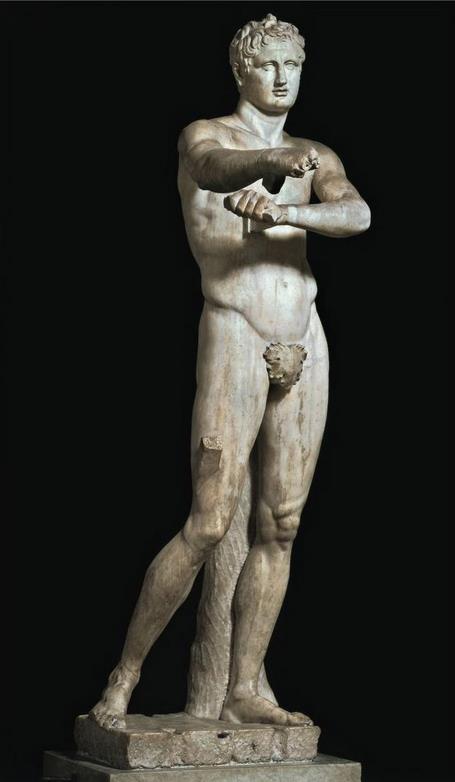
Apoxyomenos(Scraper), Roman marble copy,
probably after a bronze original c. 330 BCE,
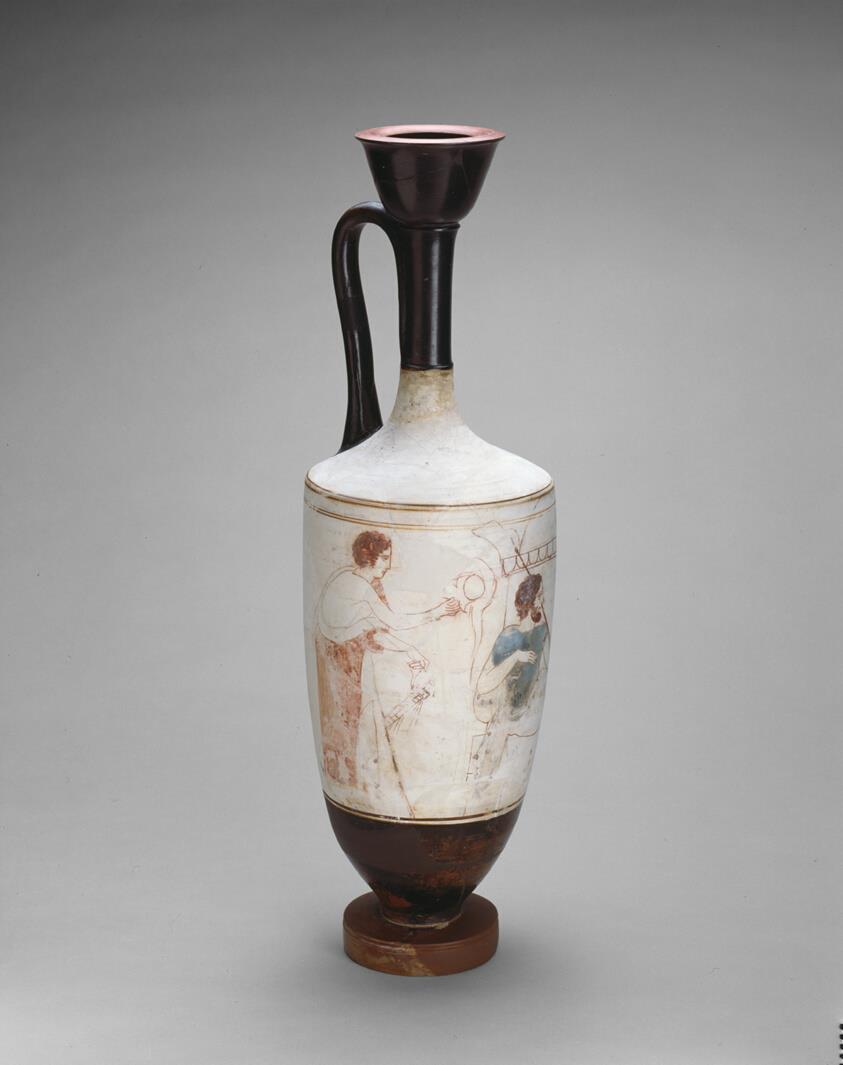
Reed Painter, white-ground lekythos, c. 425-400 BCE
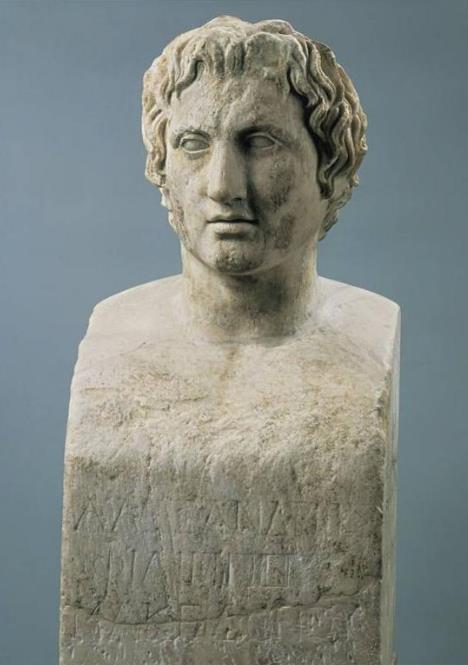
Lysippos. Portrait of Alexander the
Great, the “AzaraHerm,” Roman copy
after an original of the late 4
th
century
BCE, marble
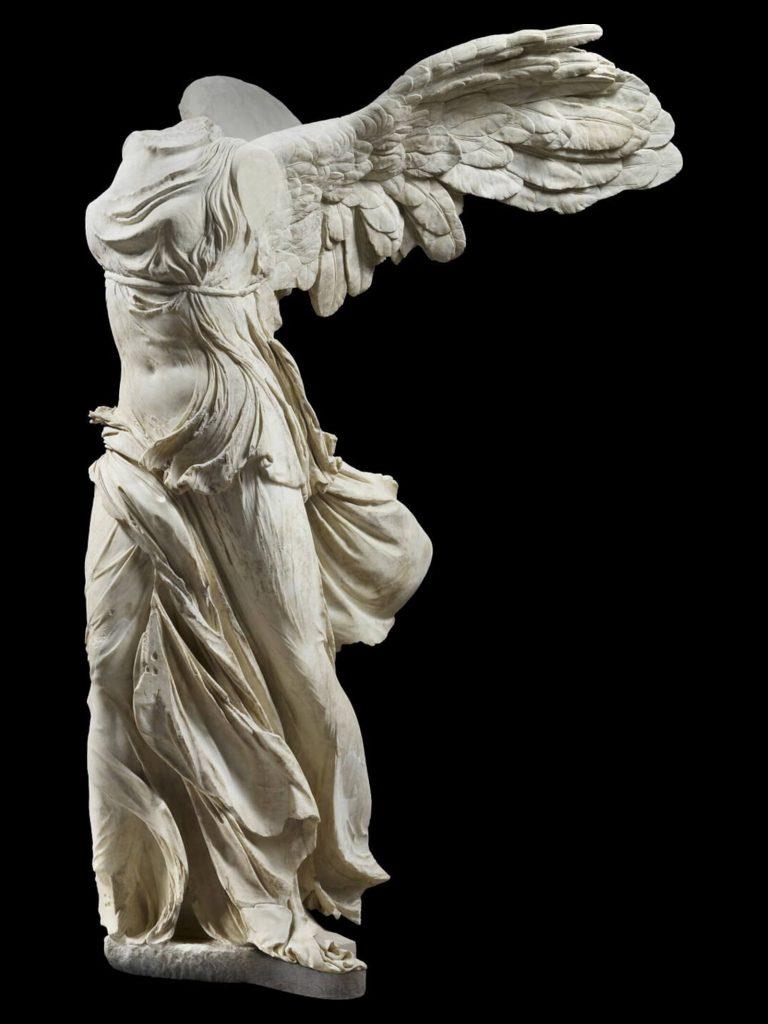
Pythokritosof Rhodes (?), Nike of
Samothrace, c. 190 BCE, marble
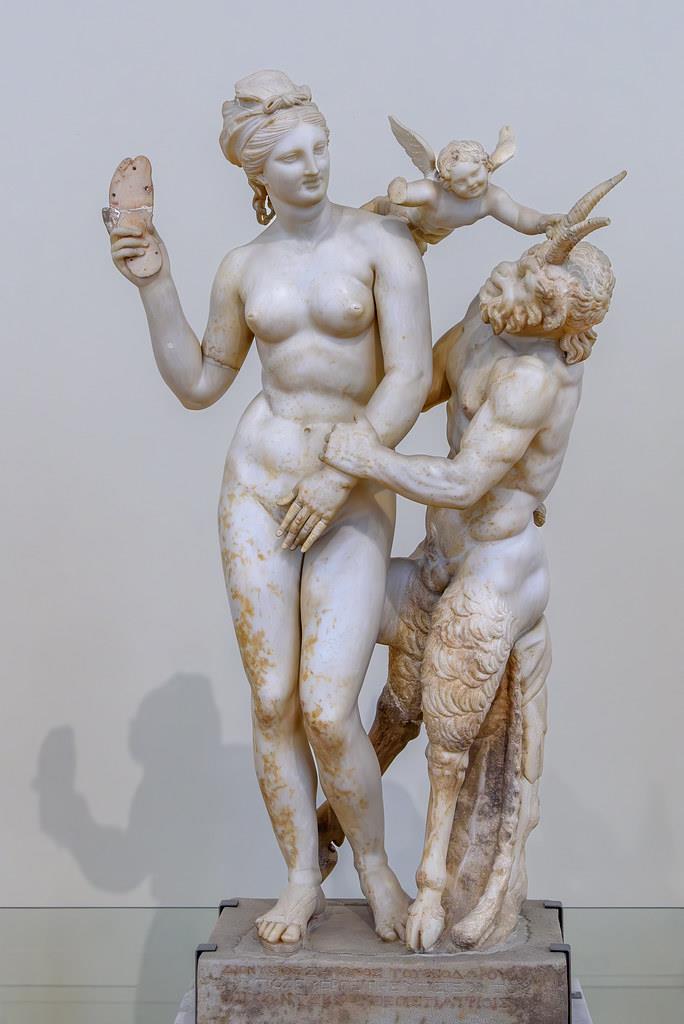
Aphrodite, Pan, and Eros, c. 100 BCE,
marble,
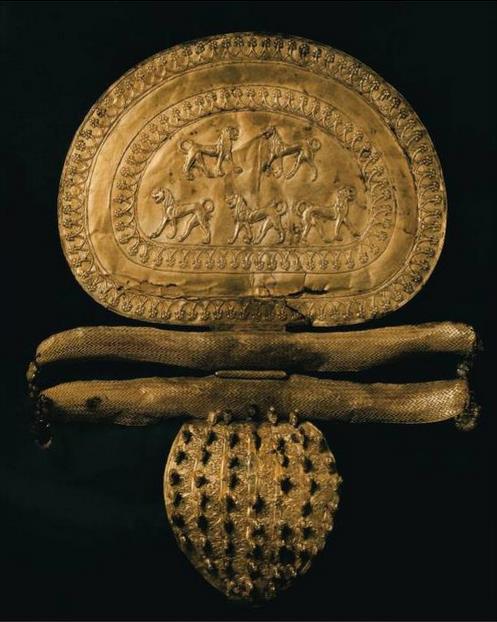
Fibula, c. 670-650, gold
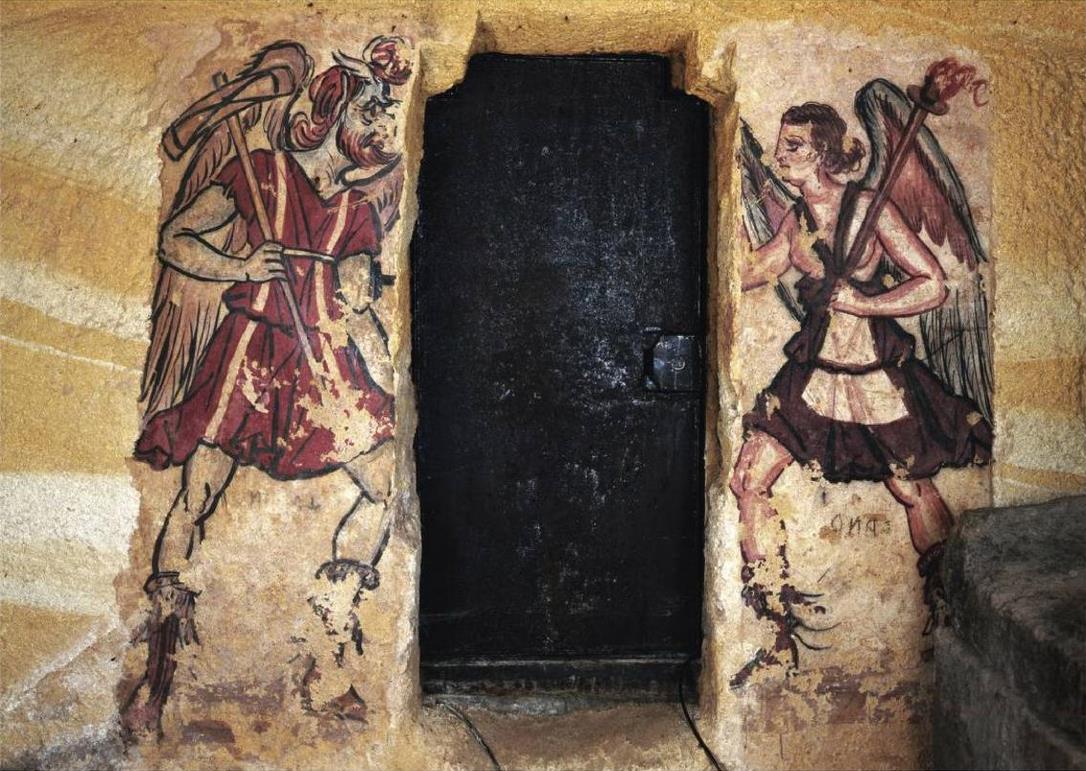
Charunand Vanthfrom the Tomb of the AninaFamily, Tarquini
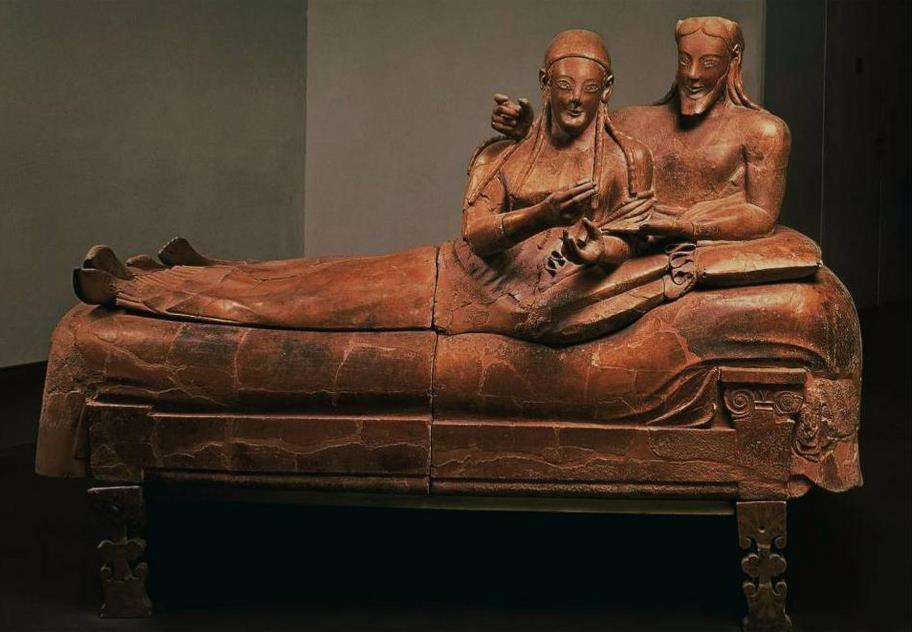
Sarcophagus from Cerveteri, c. 520 BCE, terra cotta
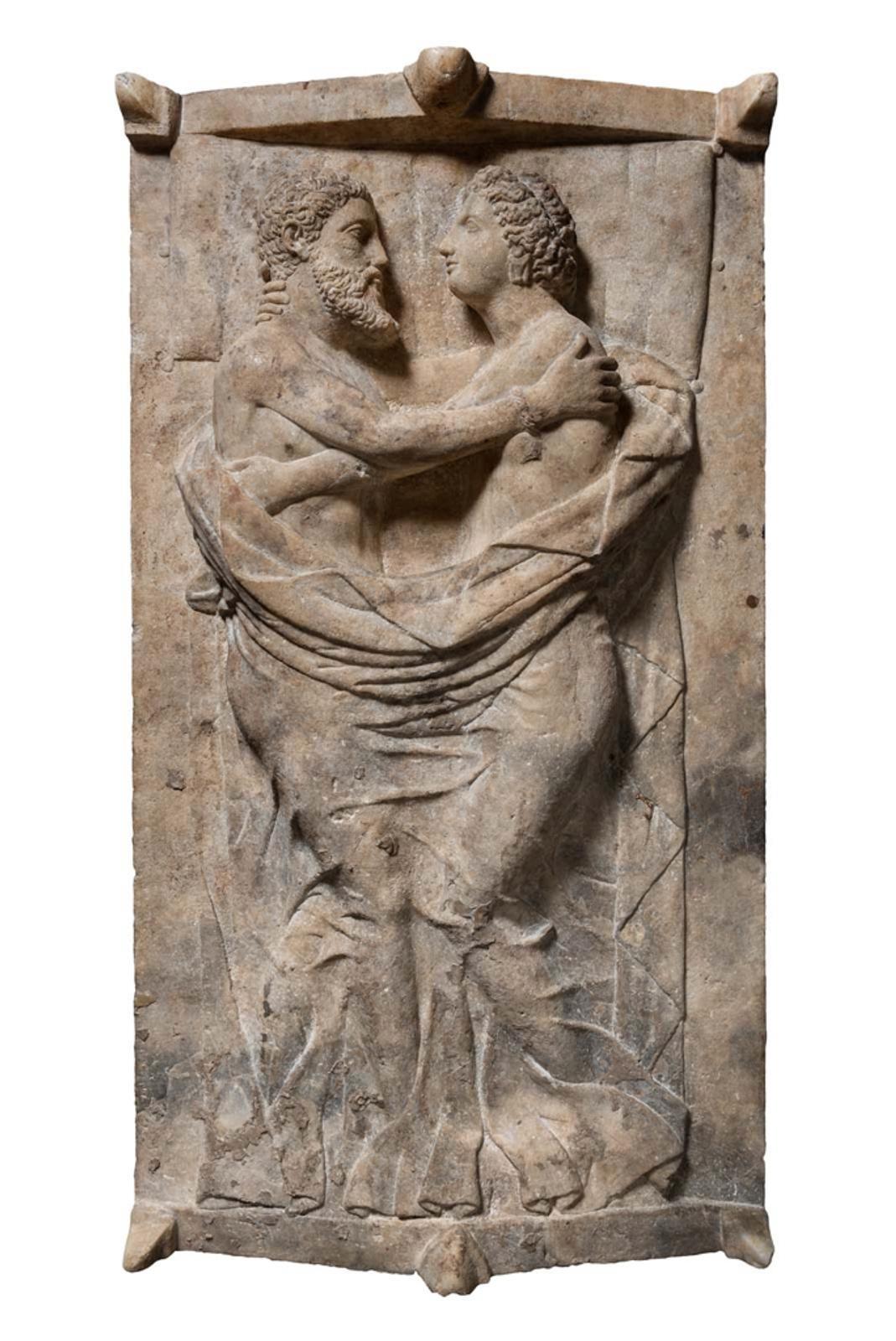
Sarcophagus lid of LarthTetniesand
ThanchvilTarnai, c. 350-300 BCE, marble
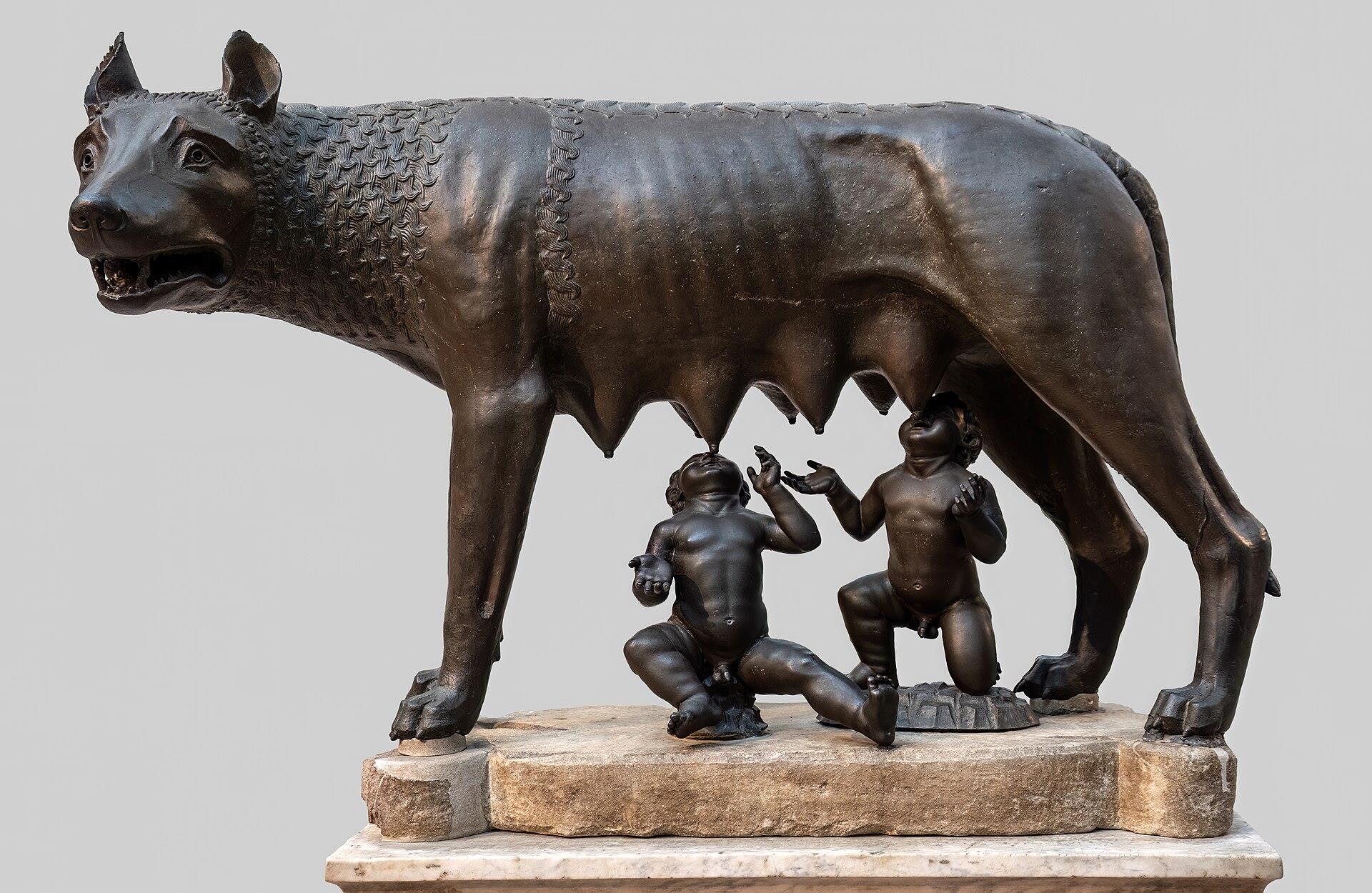
She-wolf, c. 500 BCE, bronze
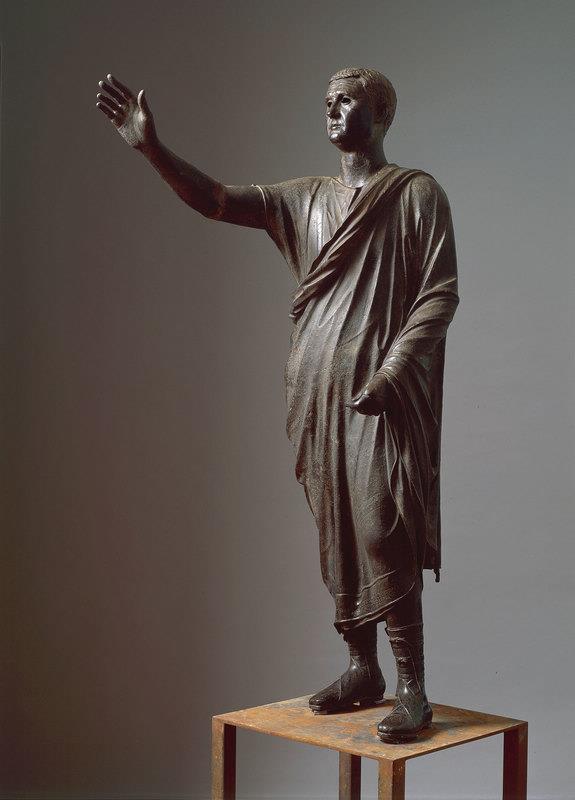
L’arringator(The Orator), early 1
st
century BCE, bronze
What were the cultures in ancient Meditteranean?
Minoan, Cycladic, Mycenean, Greek, Etruscan
What were the different artistic periods of Greece?
Geometric, Orientalizing, Archaic, Classical, Hellenistic
Corbel
a support that sticks out from a wall to hold up something above it, like a beam or balcony.
Relieving Triangle
a triangular gap above a doorway or arch that helps reduce weight on the structure below, preventing it from collapsing.
Tholos
a round, domed building, often used as a tomb or temple in ancient Greece.
Peripteral Temple
a temple surrounded by a single row of columns on all sides.
Metope
a square panel between the grooves of a Doric frieze, often decorated with carvings or sculptures.
Triglyph
a decorative block with three vertical grooves on a Doric frieze, placed between metopes.
Volute
a spiral or scroll-shaped design, most commonly seen on Ionic column capitals.
Entablature
the horizontal part that sits on top of columns in classical architecture, made up of three main sections: the architrave, frieze, and cornice
Frieze
middle part of an entablature, often decorated with carvings or sculptures, running along the top of a building.
Pediment
triangular space above a doorway or building, often decorated with sculptures, typically found in classical architecture.
Acropolis
high, elevated area in a city, often with important buildings or temples
What are the features of a doric style column?
No base (it sits directly on the floor).
Capital with a plain, flat top.
Fluted shaft (vertical grooves) with no decoration.
simple design
What are the features of an Ionic style column?
Slender and elegant design.
Base (it sits on a pedestal).
Capital with decorative scrolls (called volutes) on each side.
Fluted shaft (vertical grooves)
What are the features of a Corinthian Column?
Tall and graceful design.
Base (rests on a pedestal).
Capital with elaborate, leafy decorations, usually acanthus leaves.
Fluted shaft (vertical grooves).
When did the Classical period in Greece end?
It ended with the death of Alexander the Great, 323 BCE
When did the Archaic period end in Greece?
Ended at the start of the Persian Wars, 480 BCE